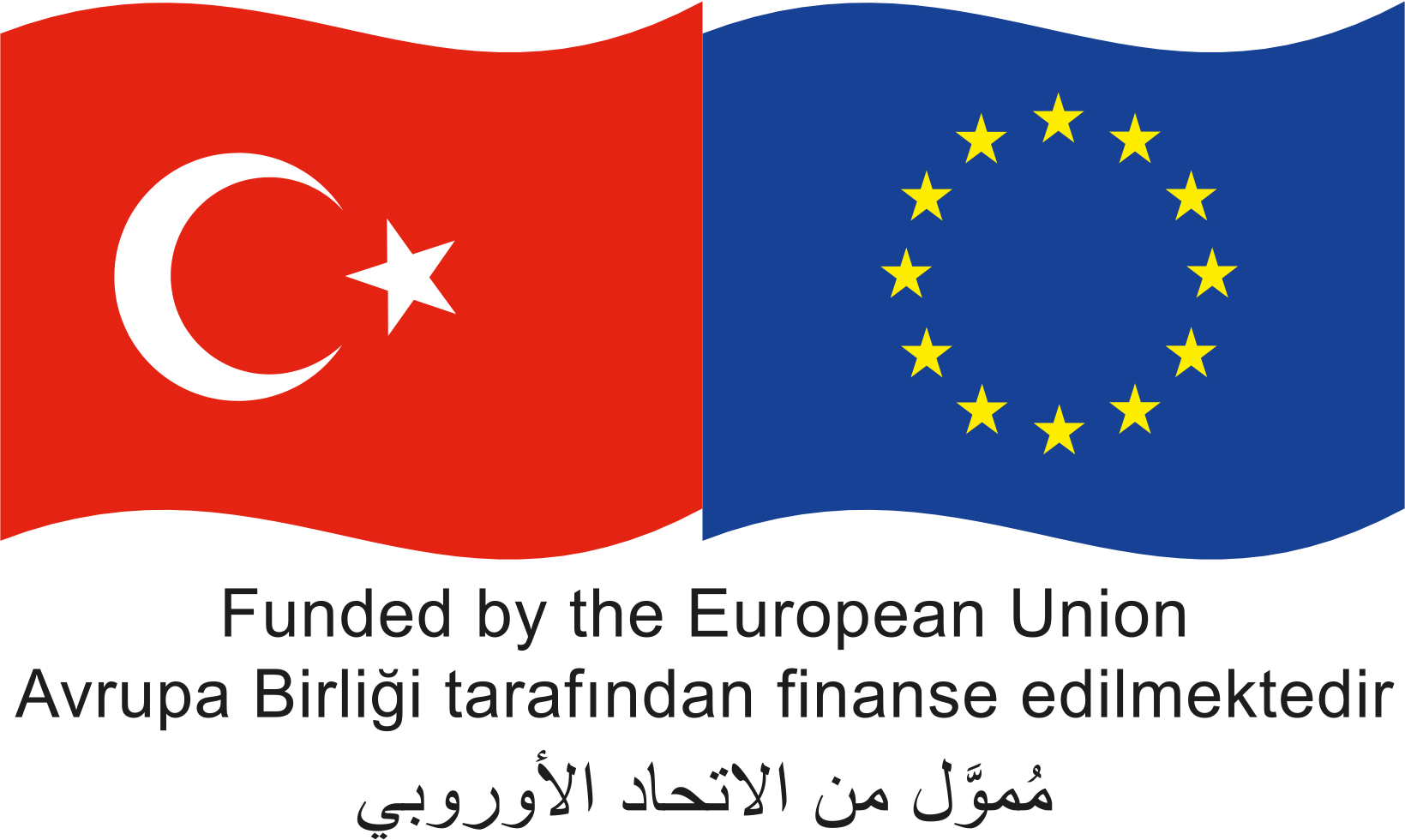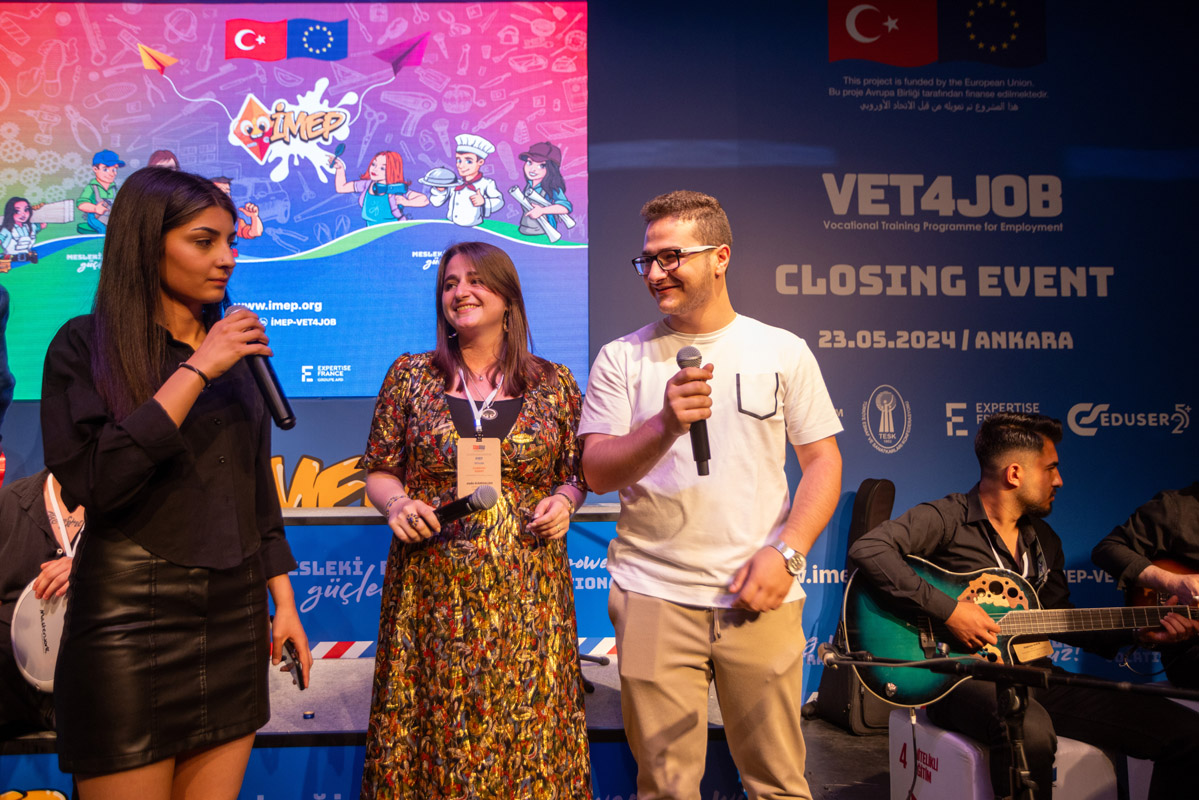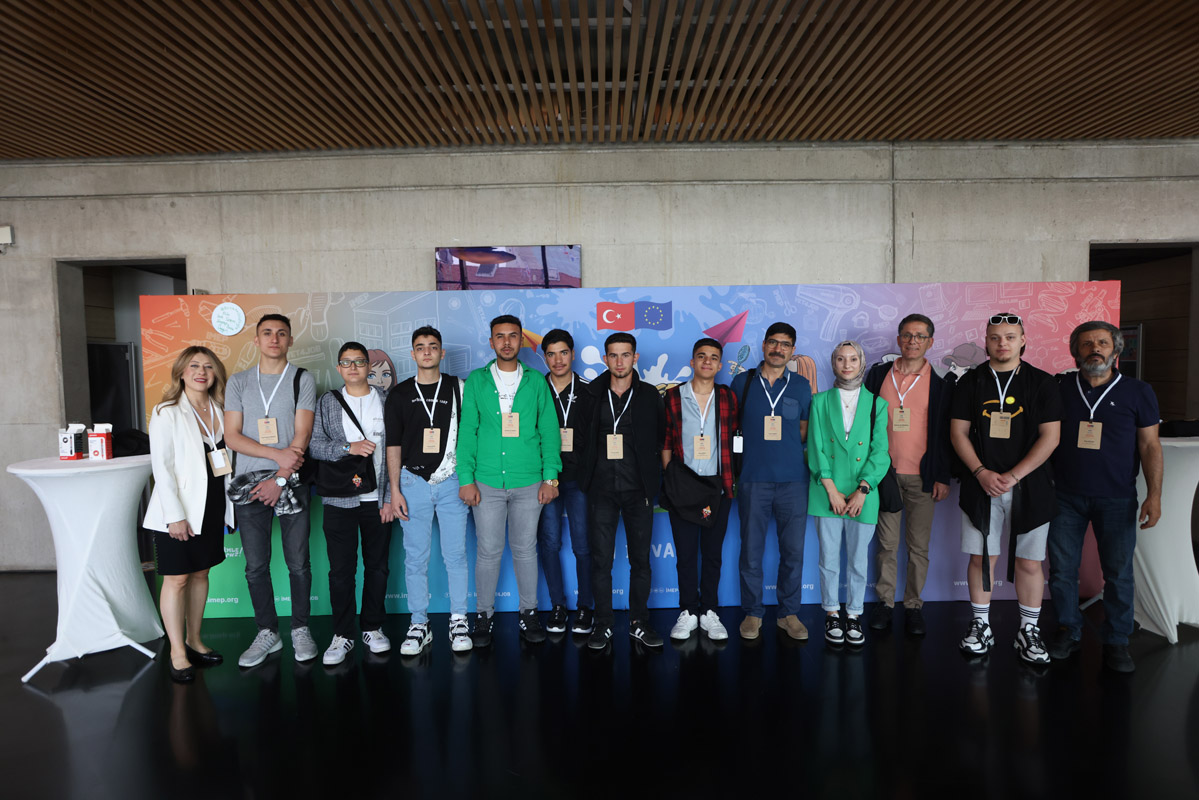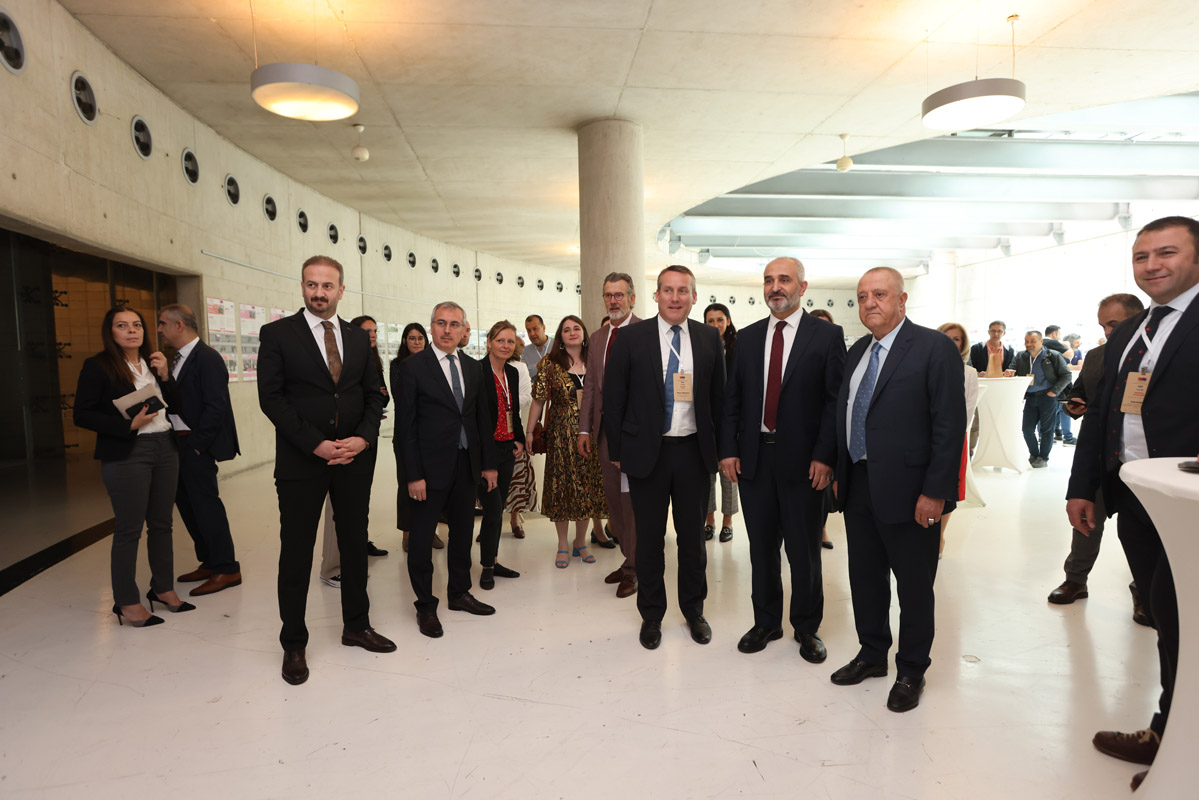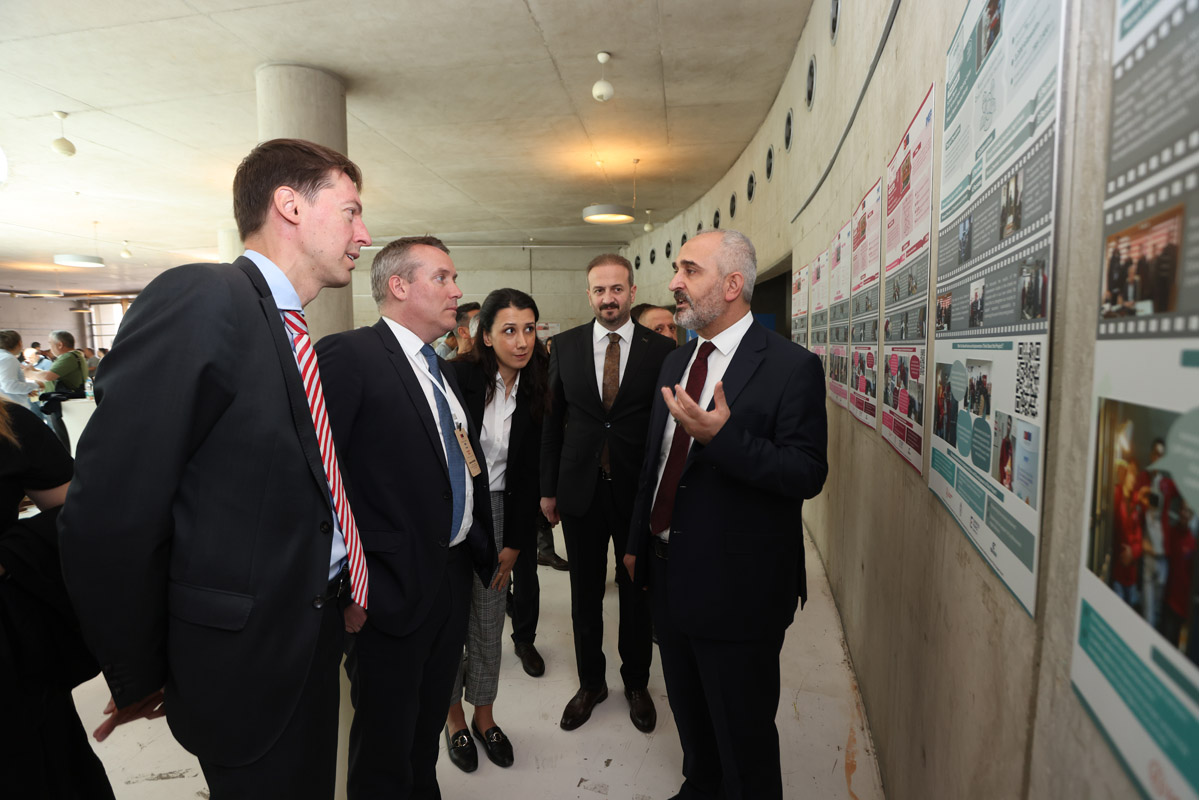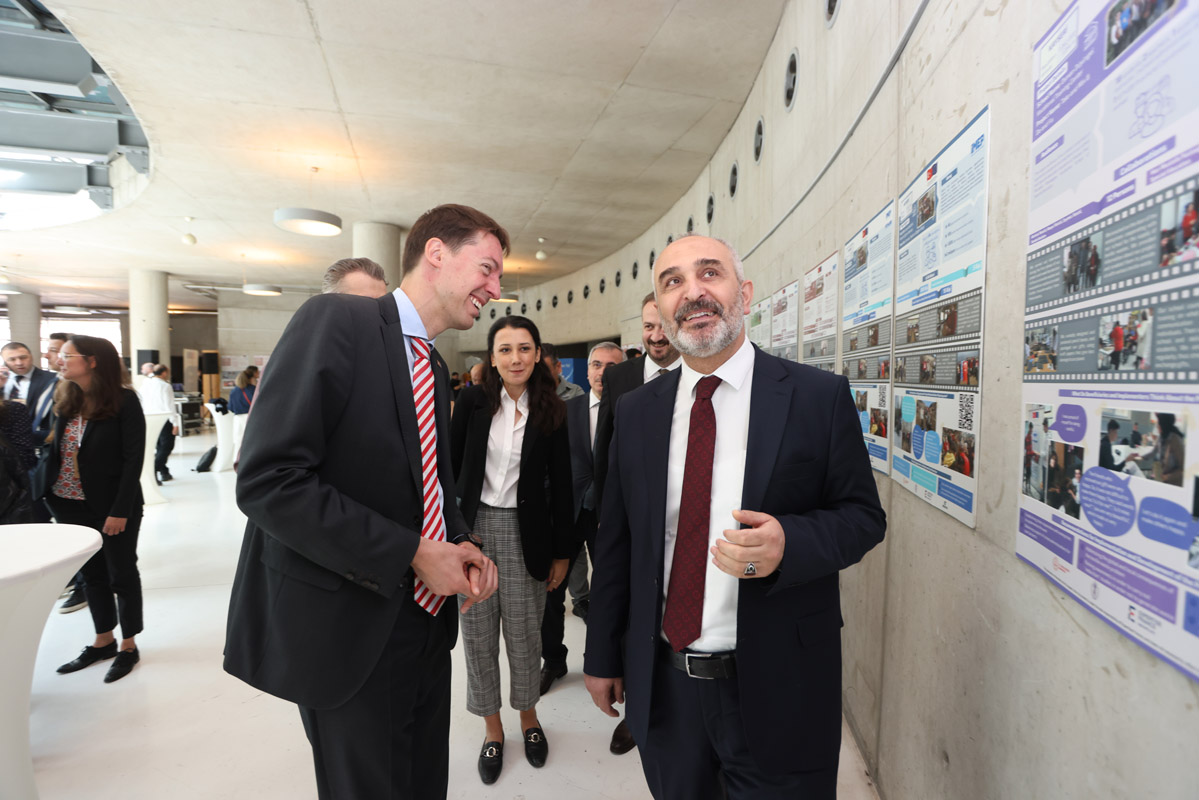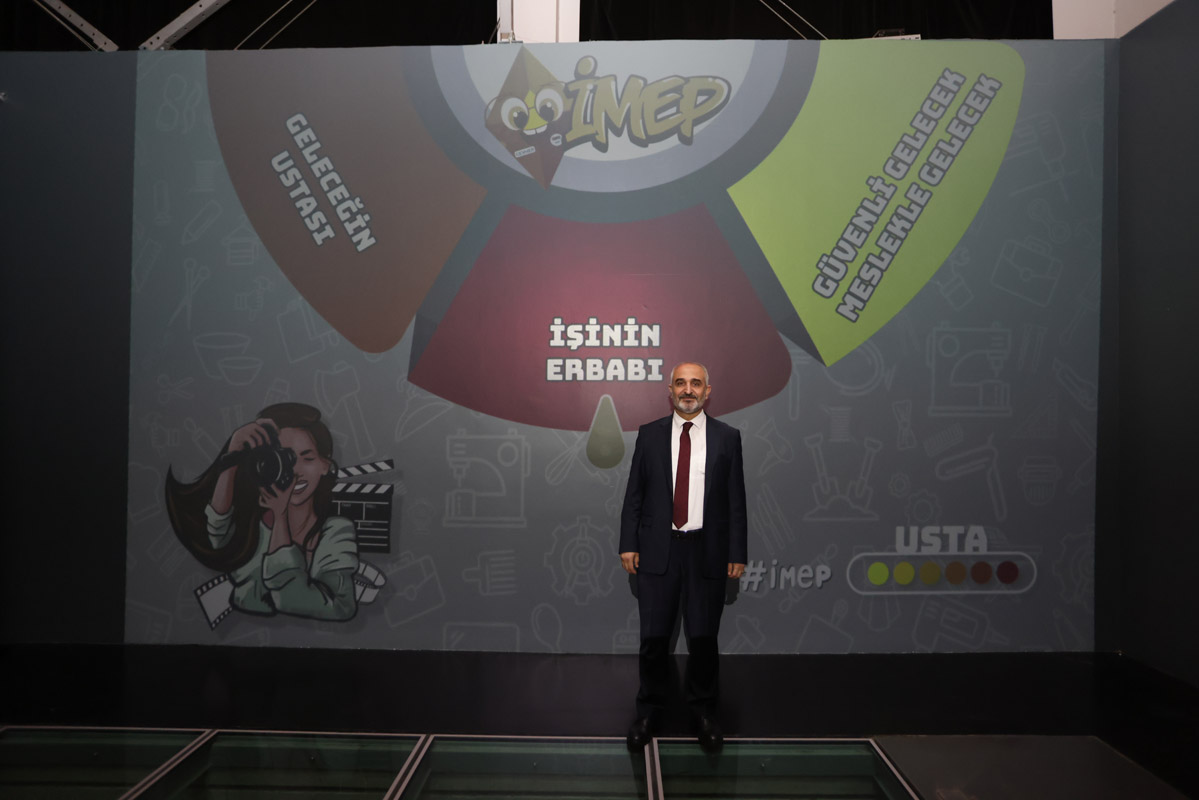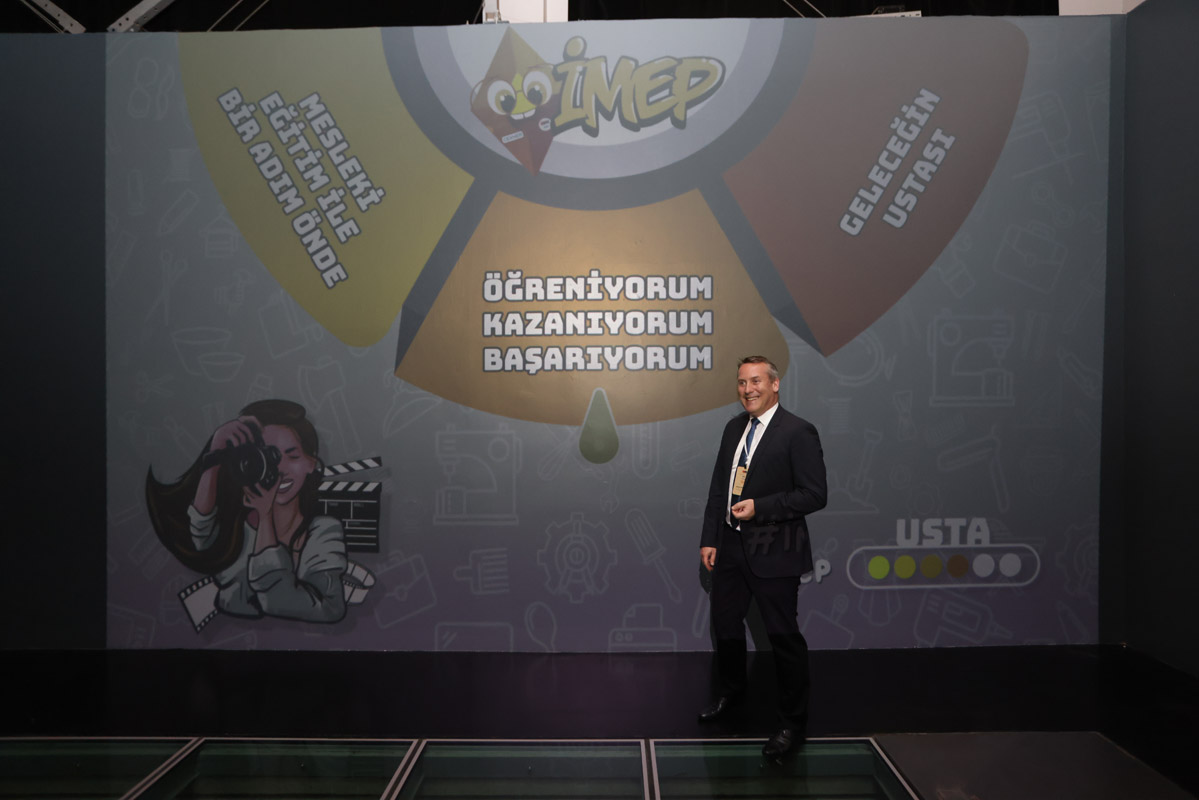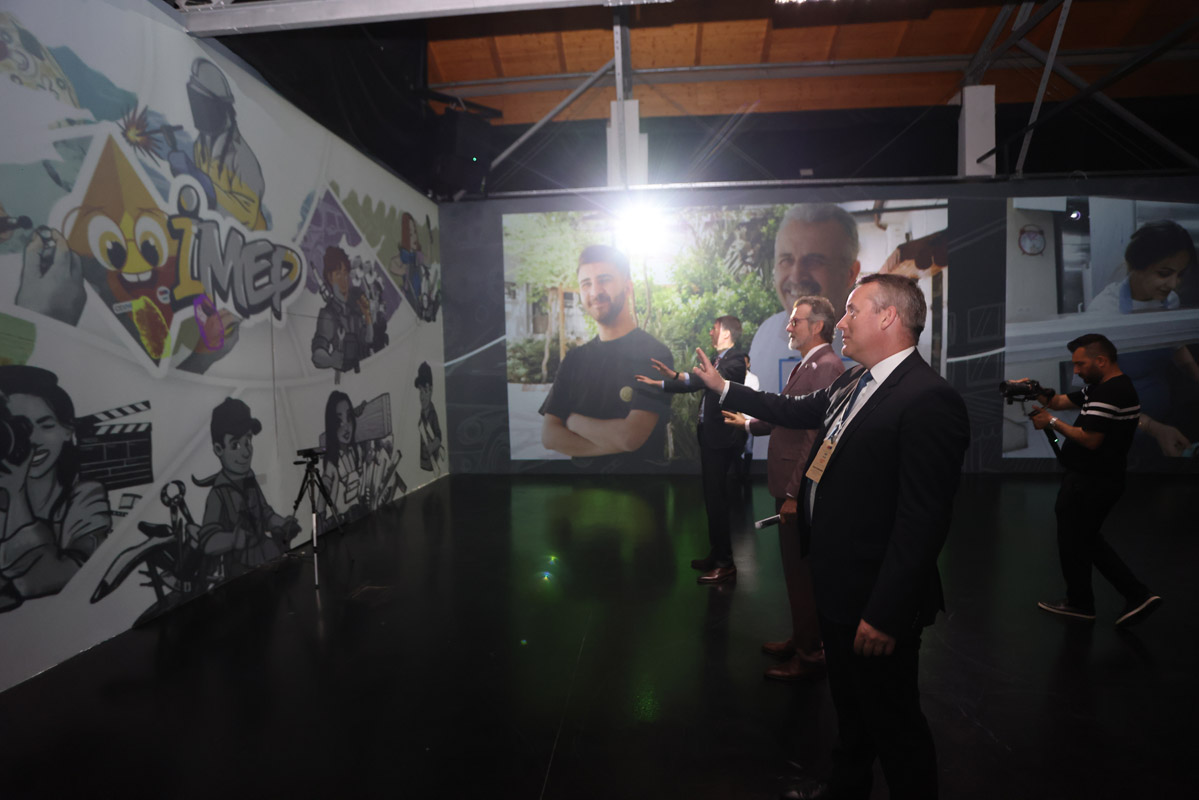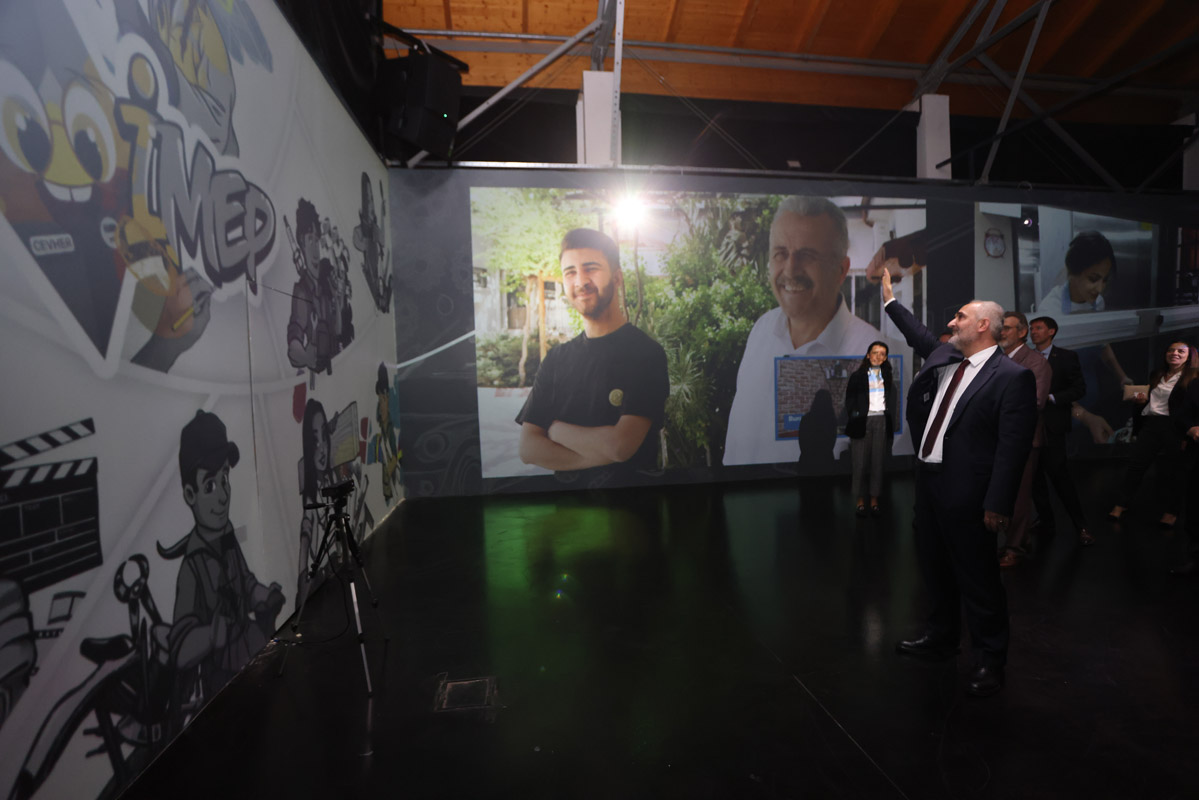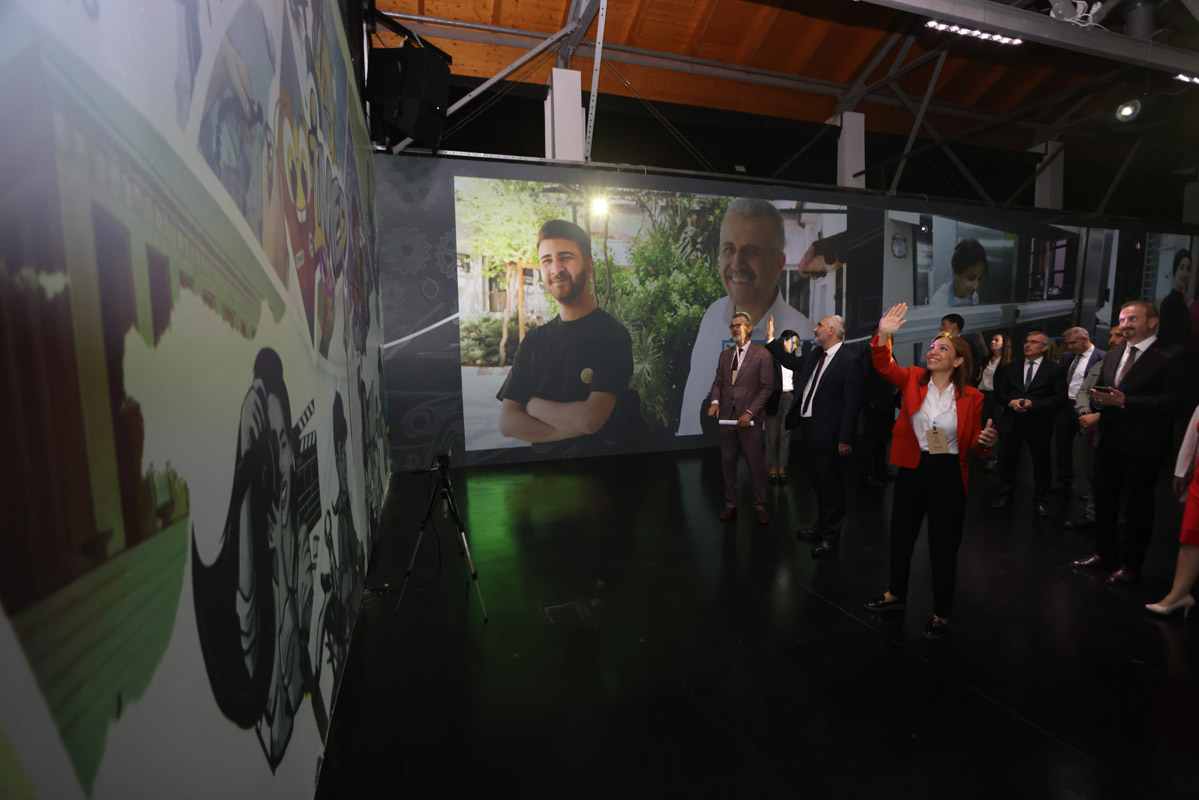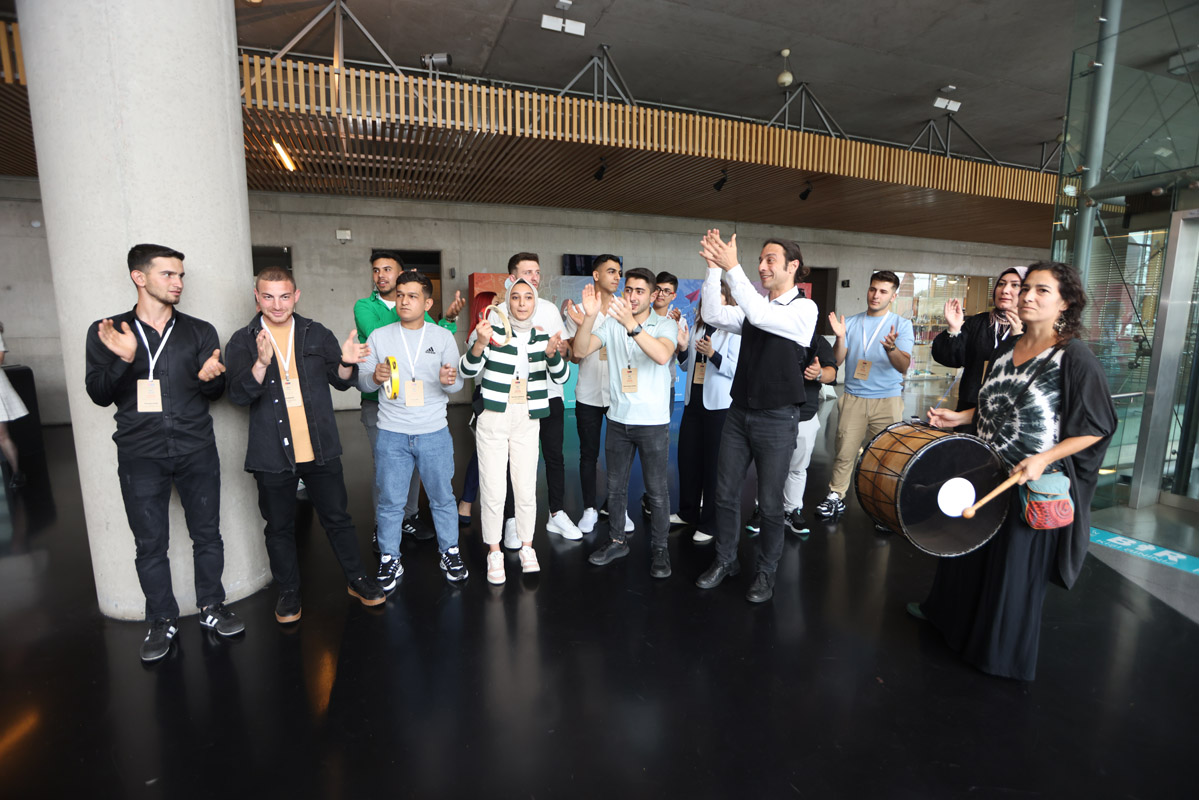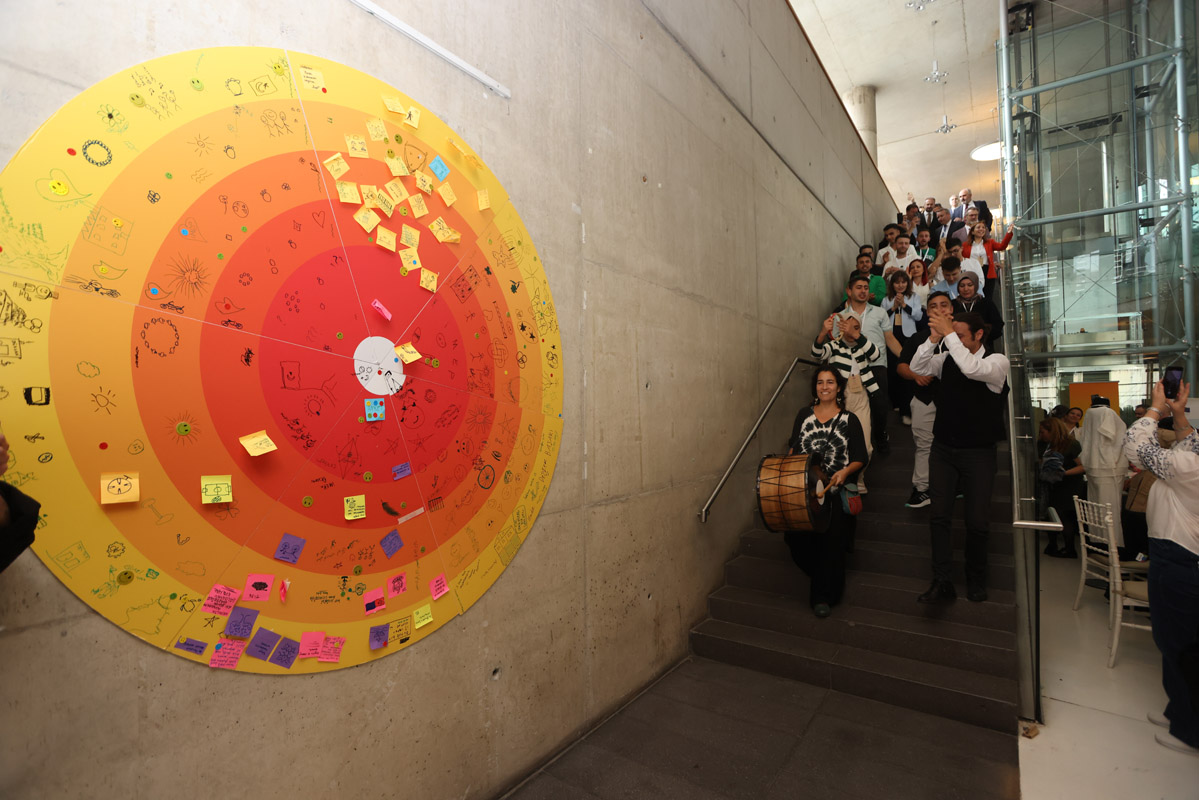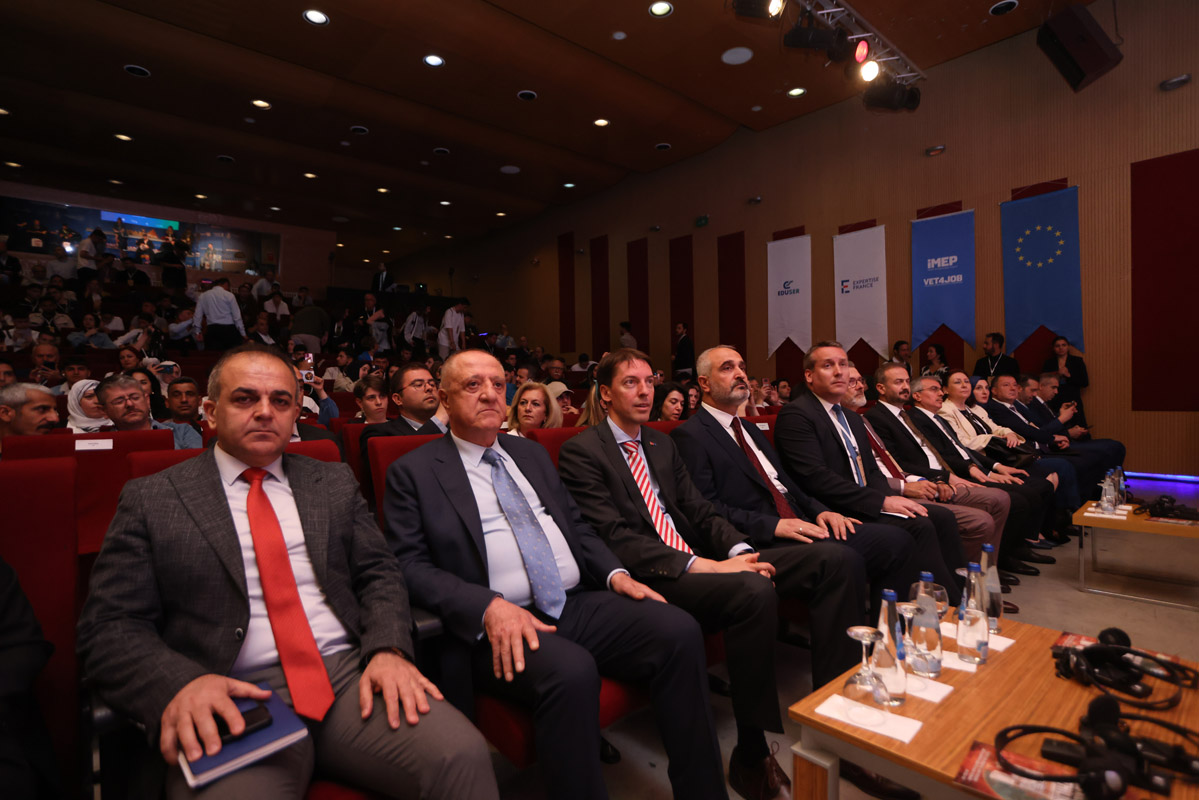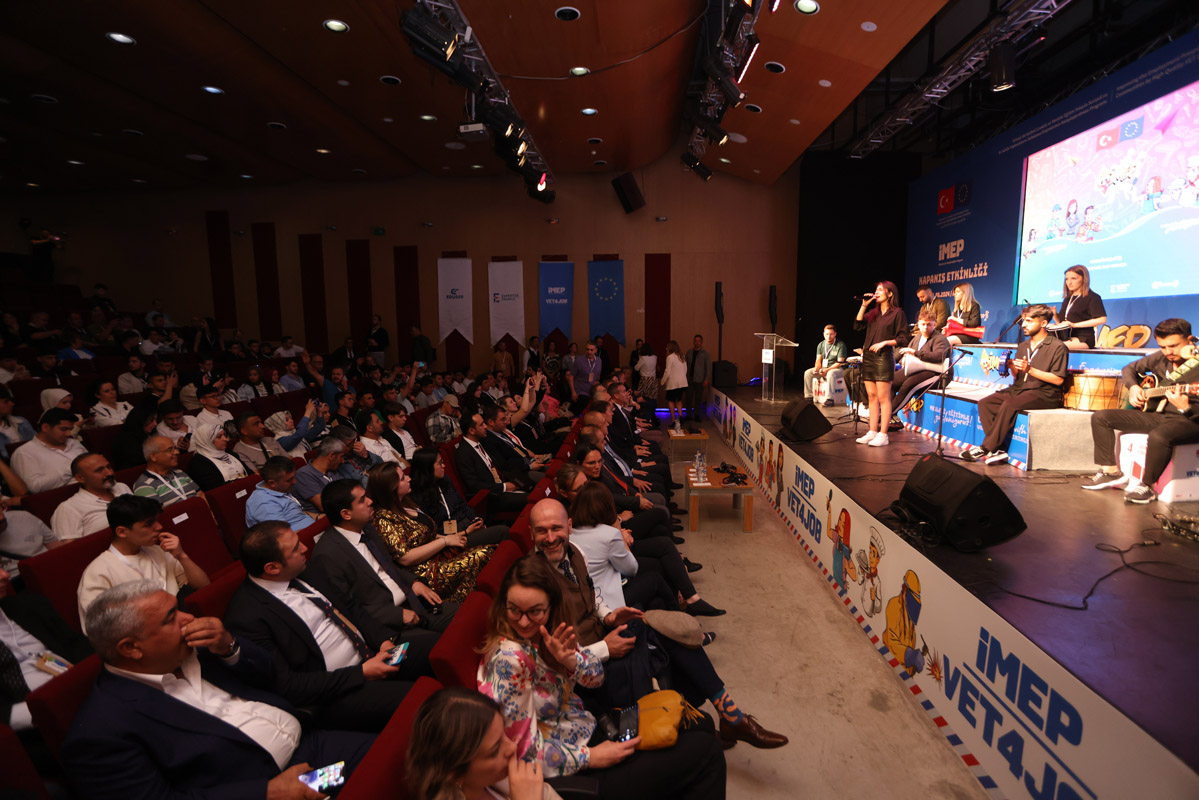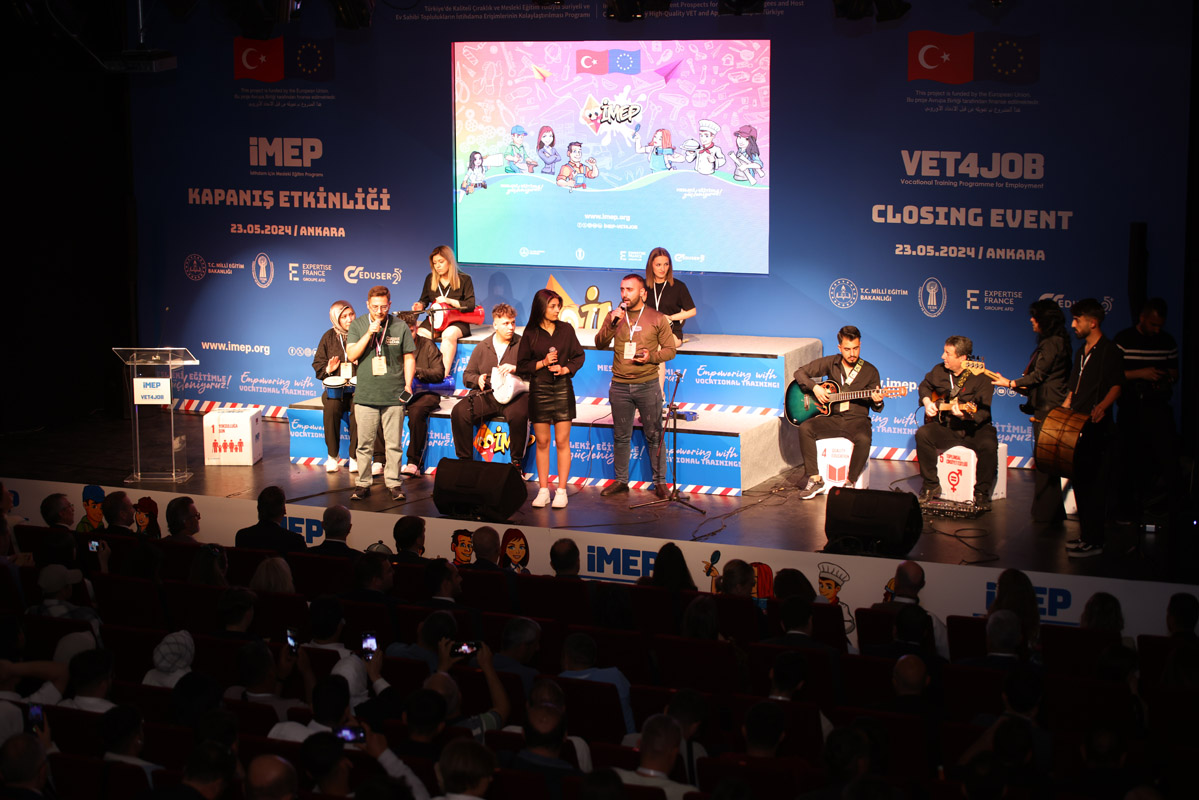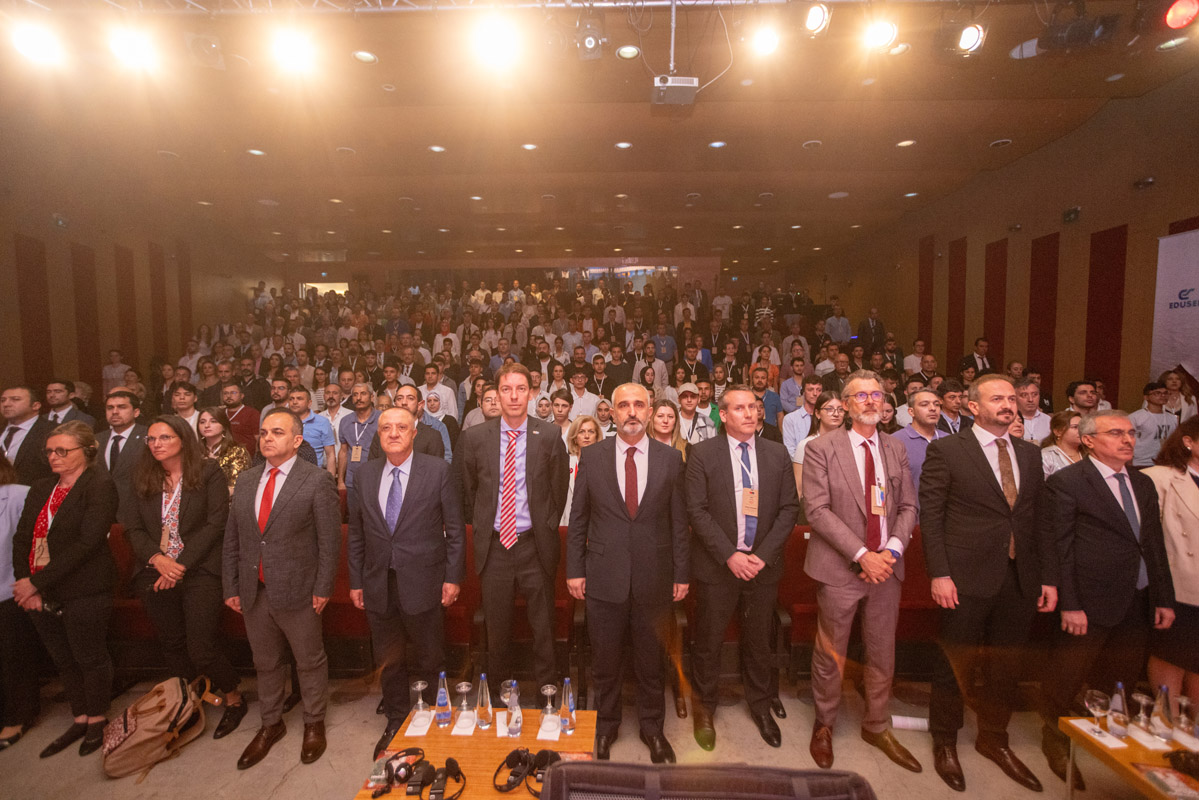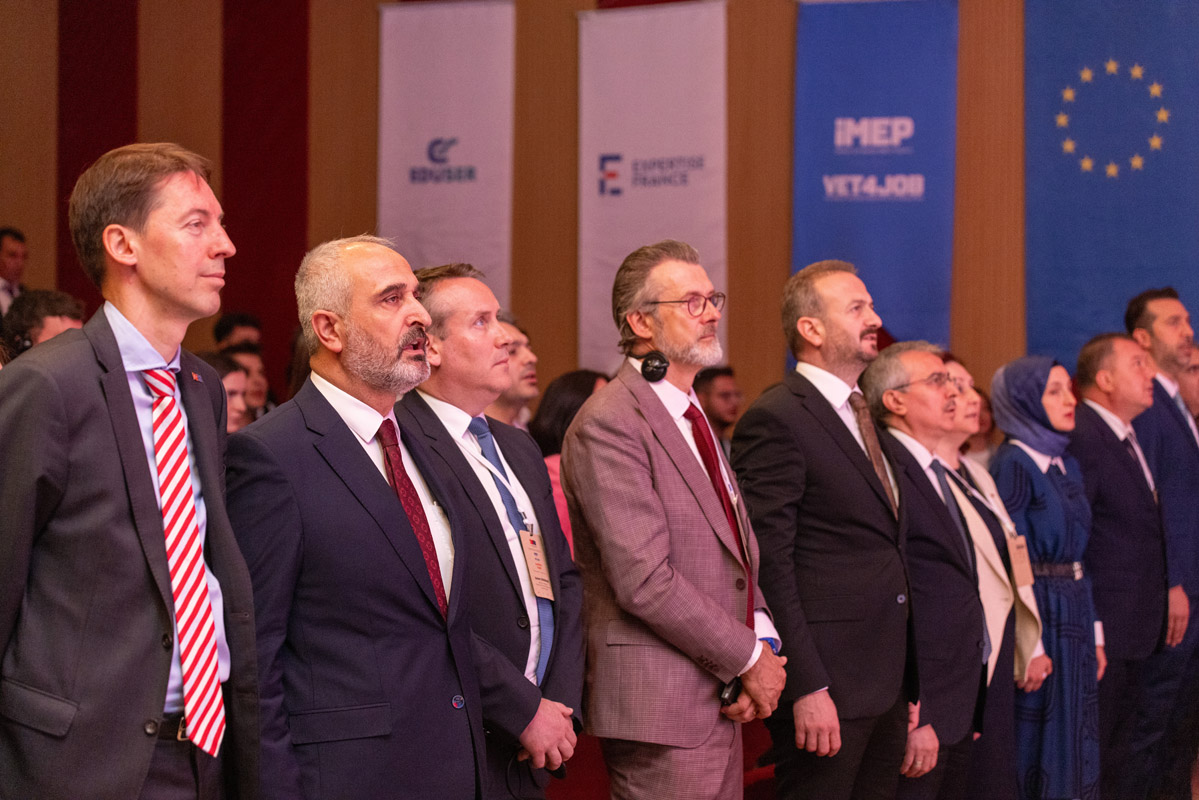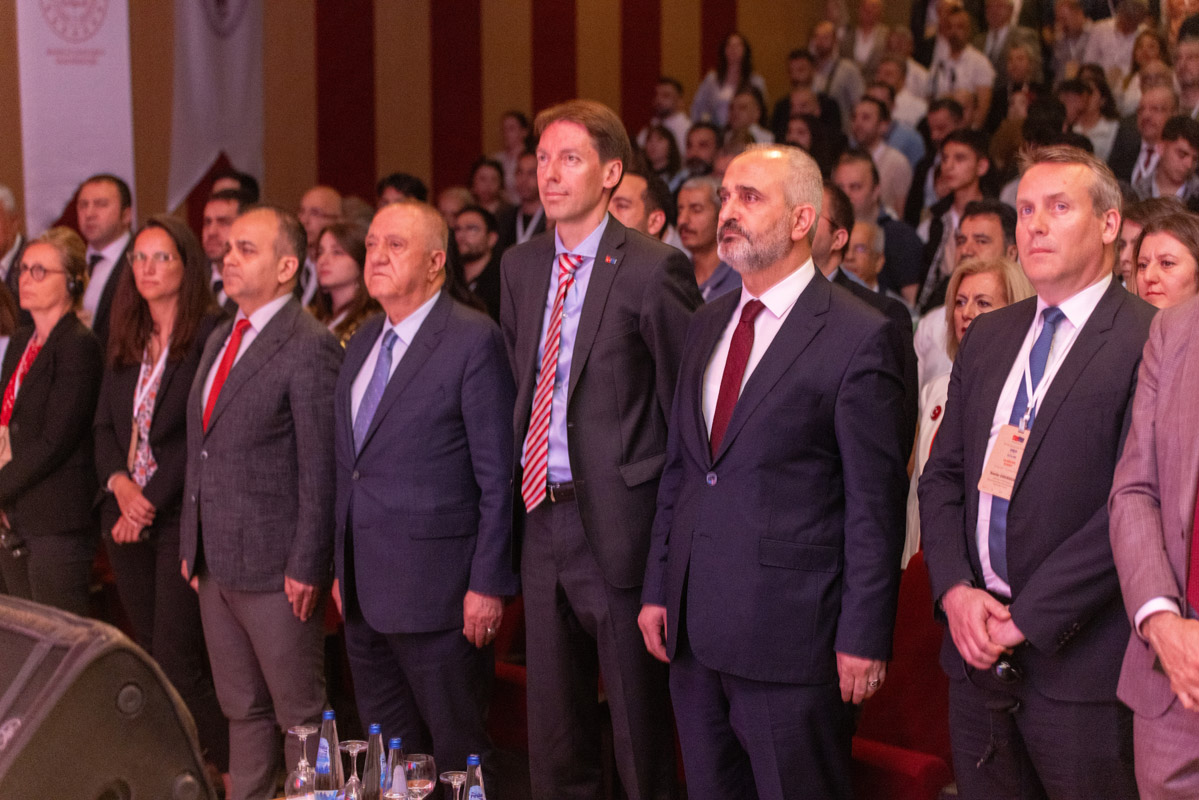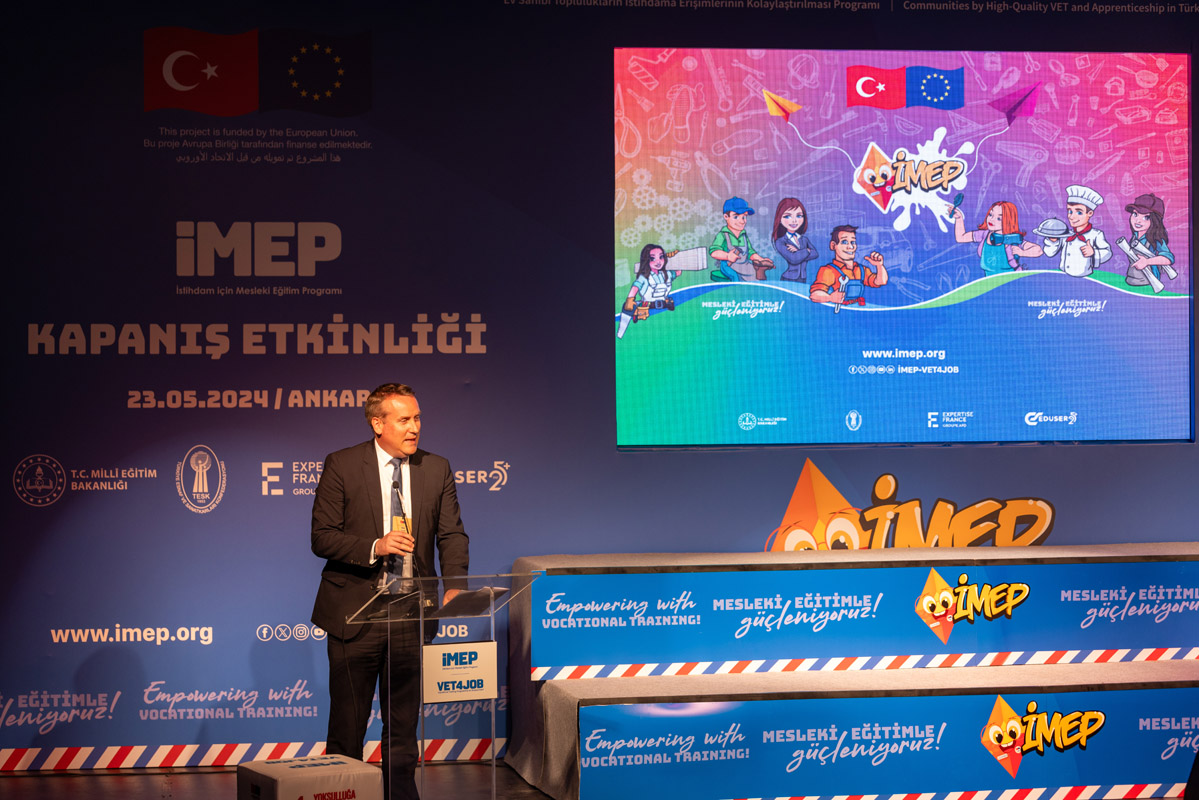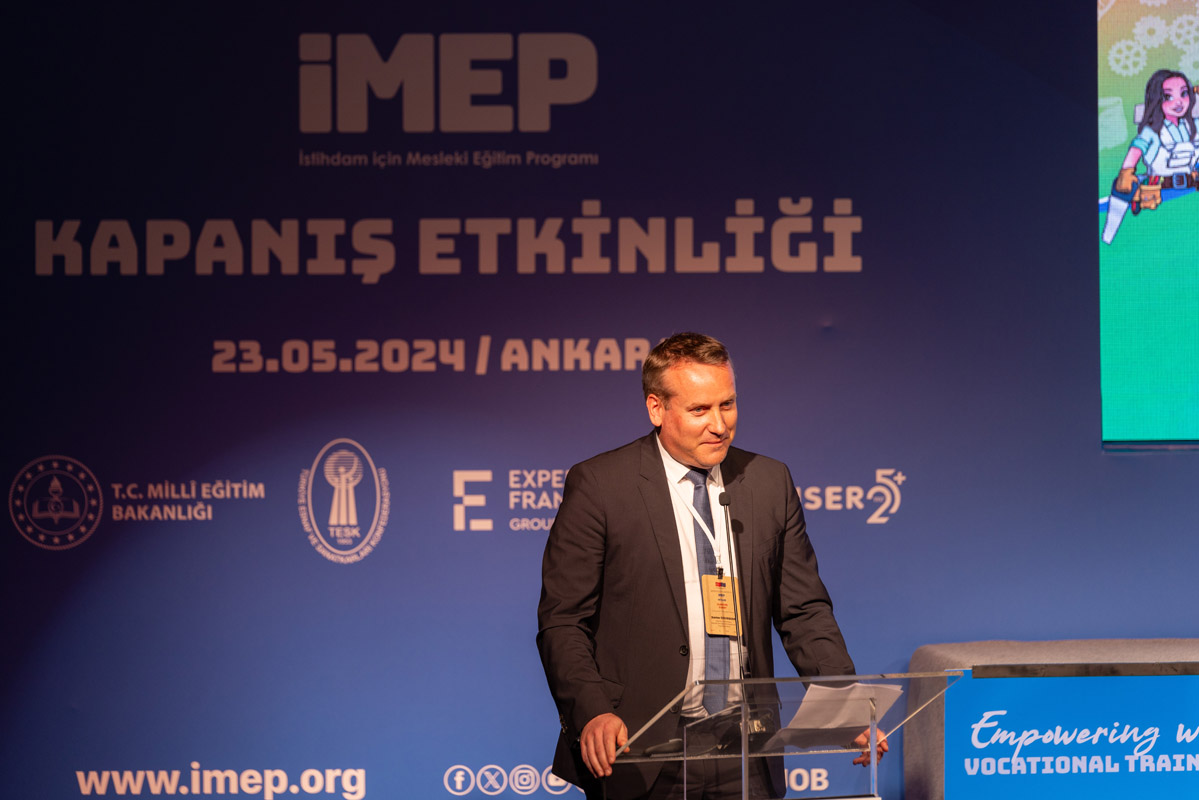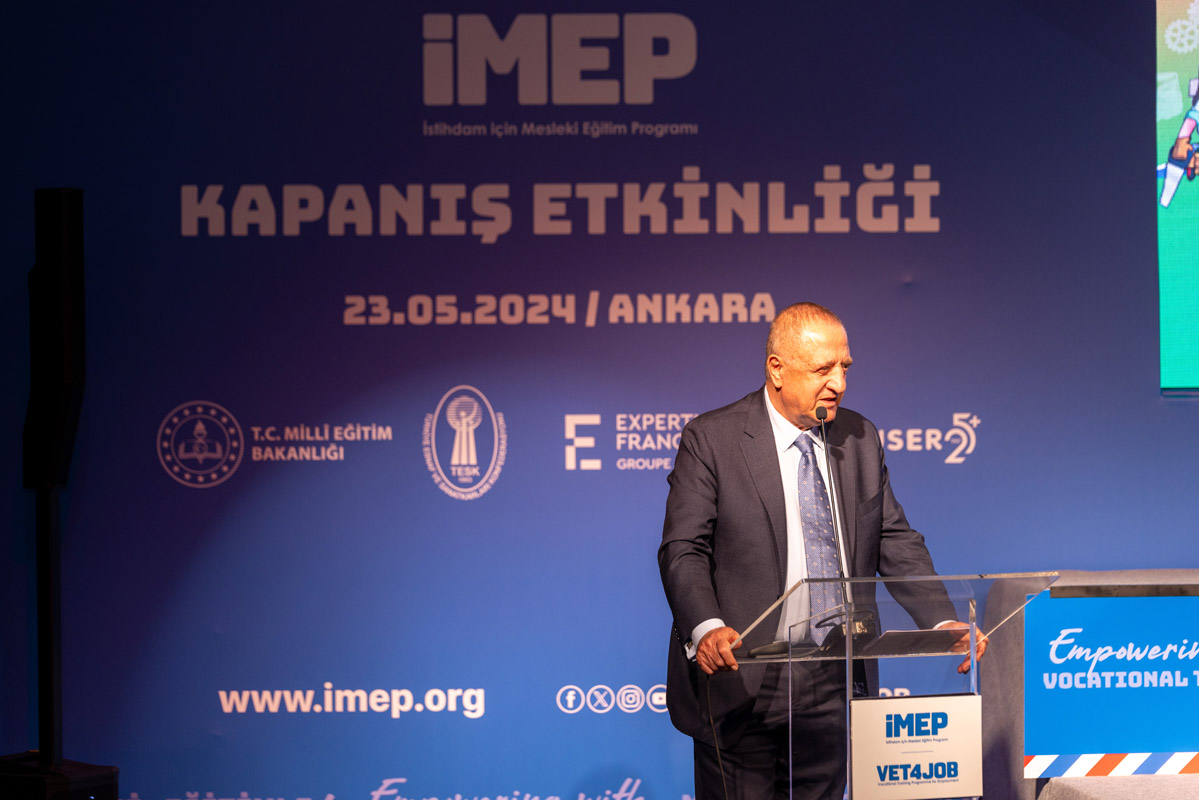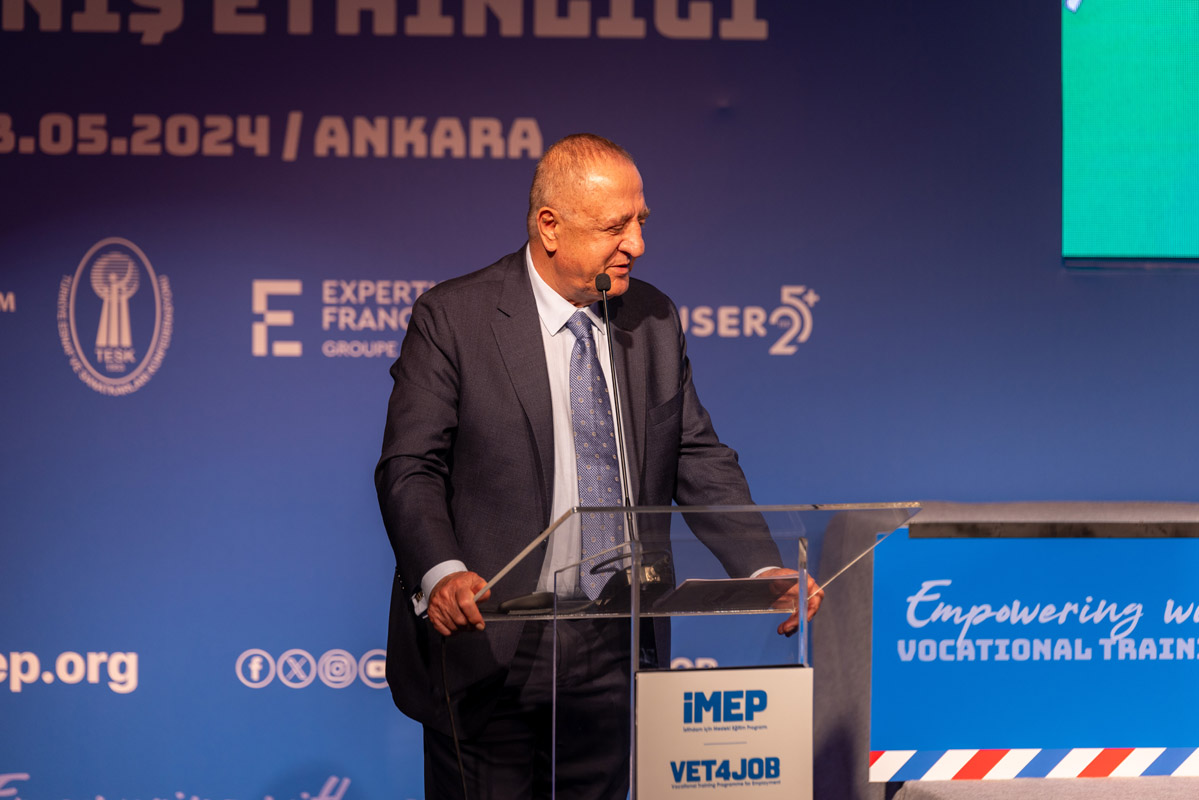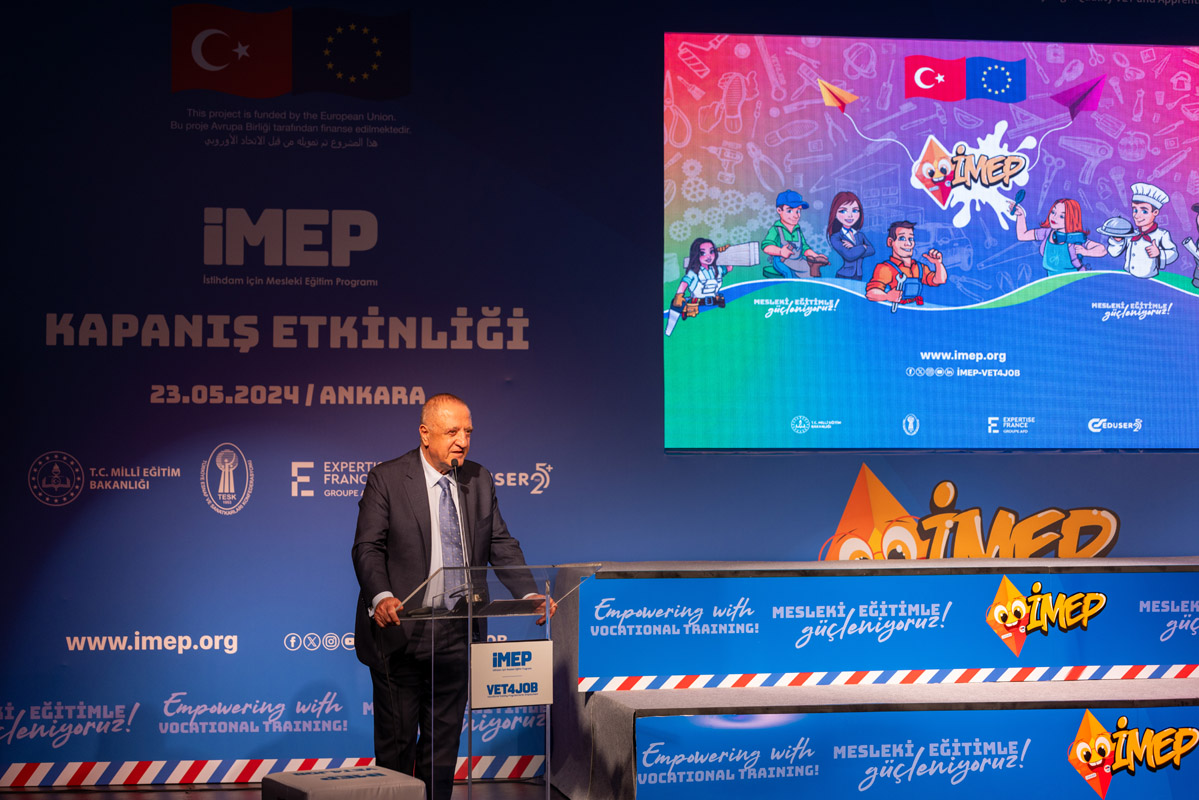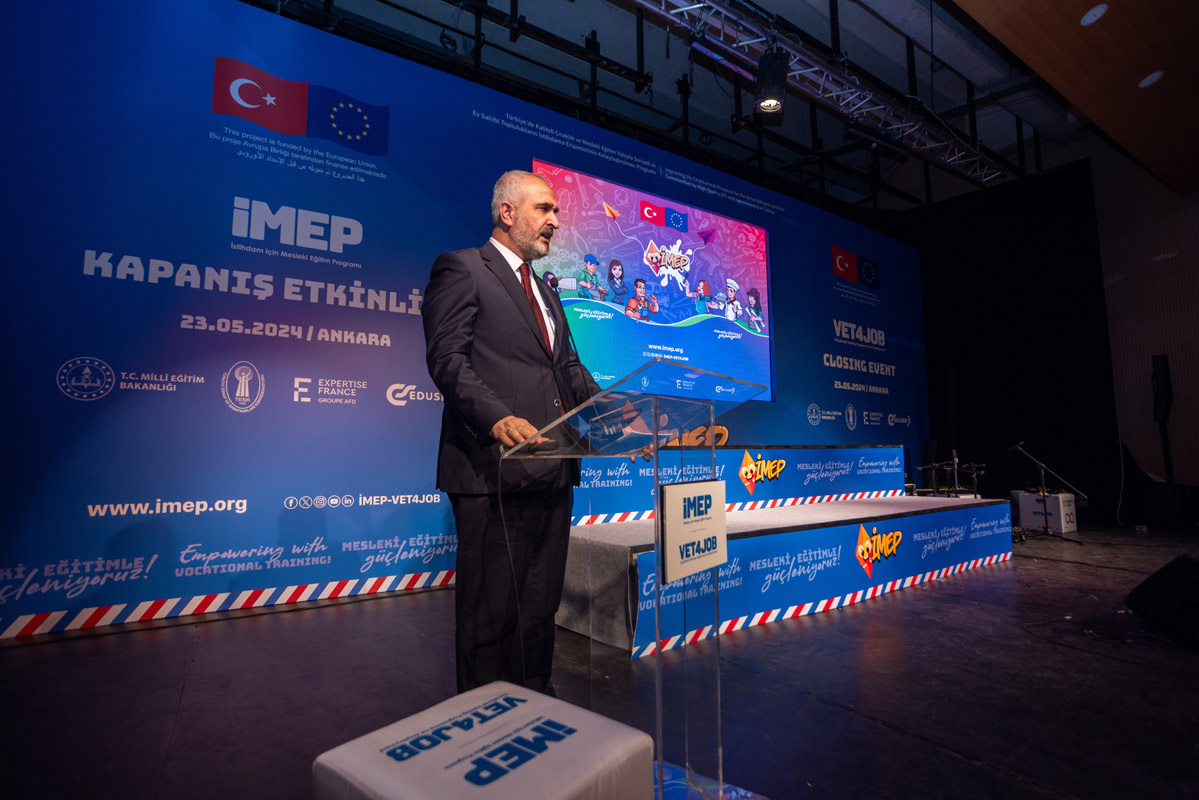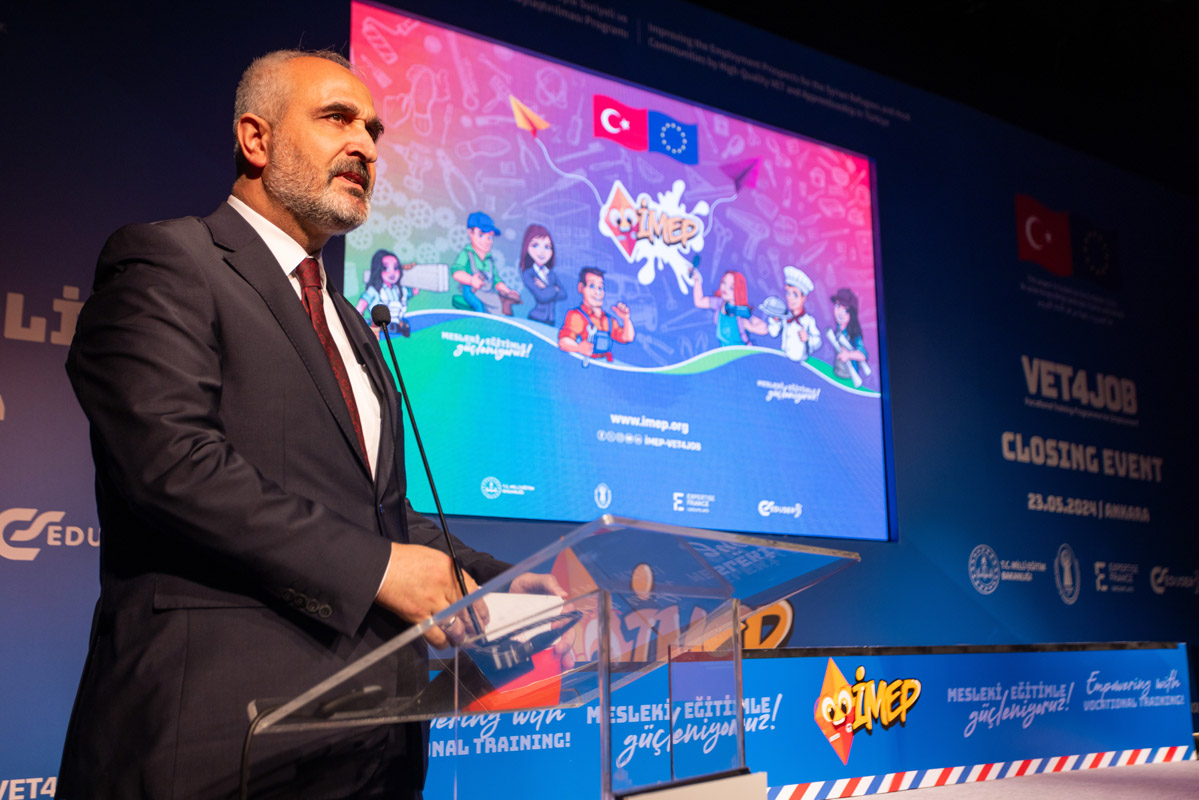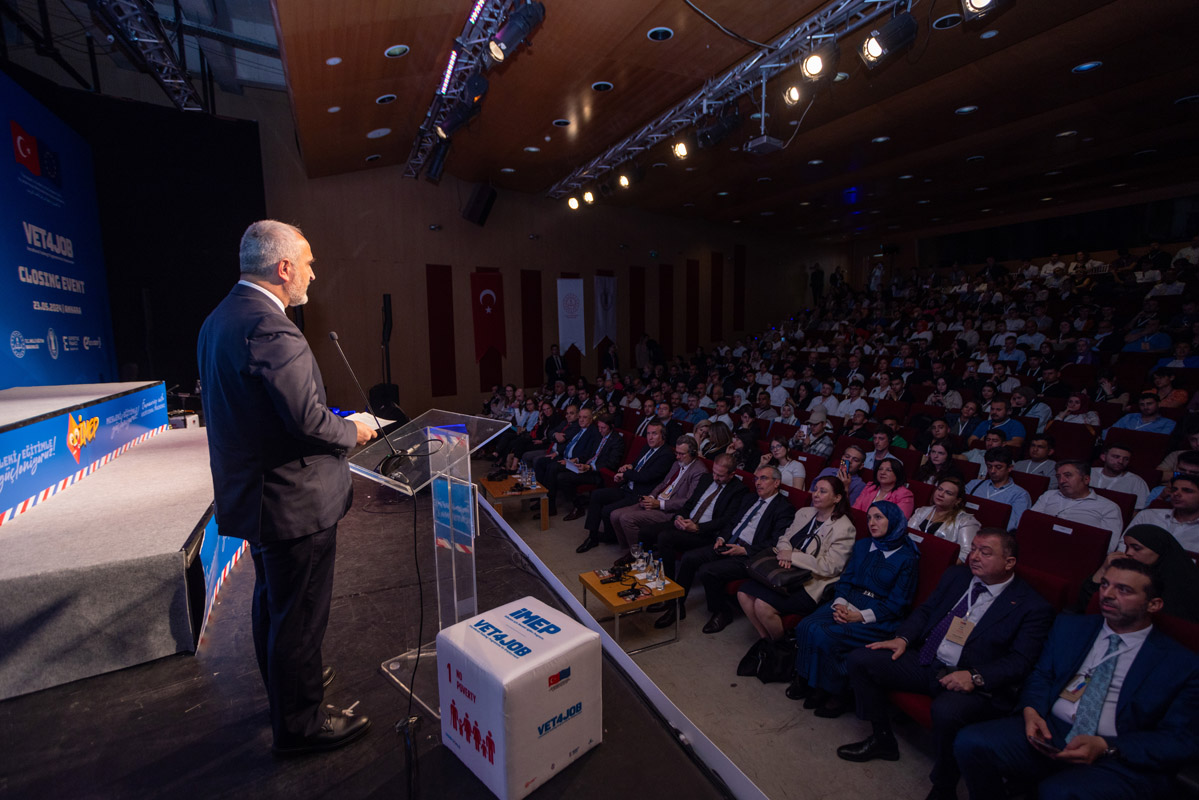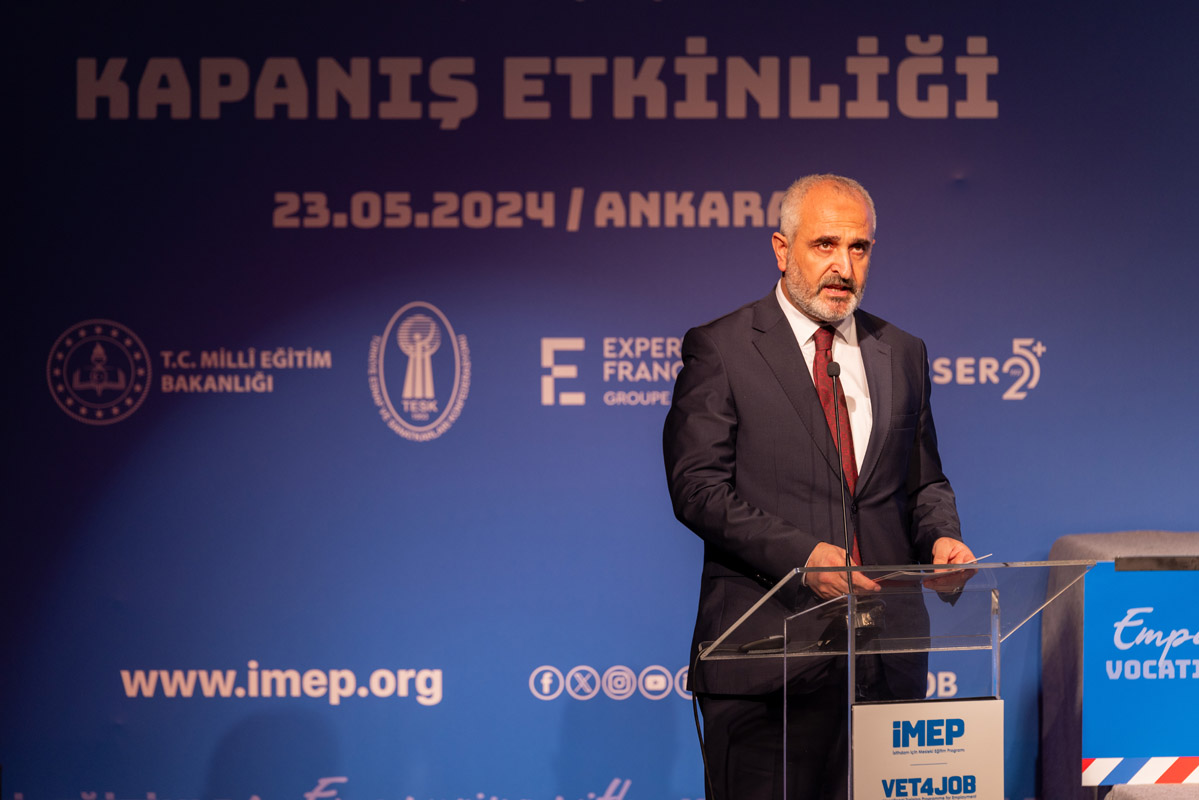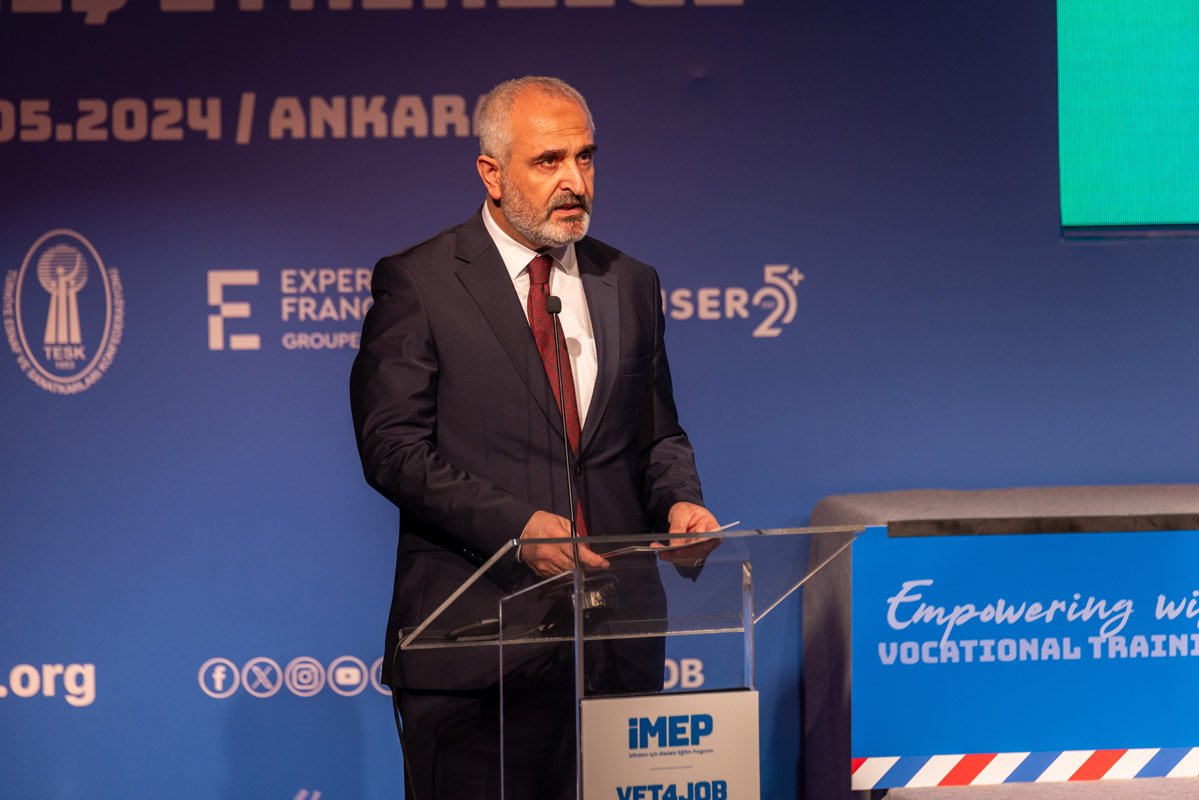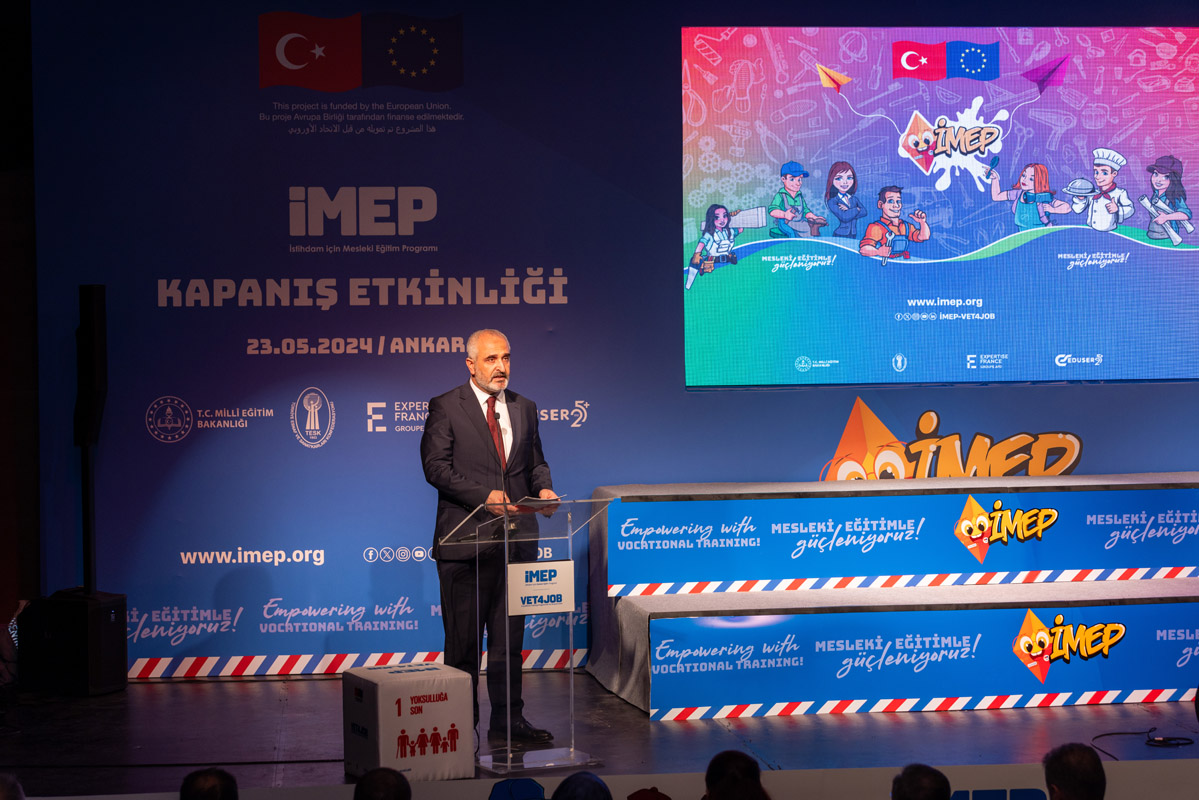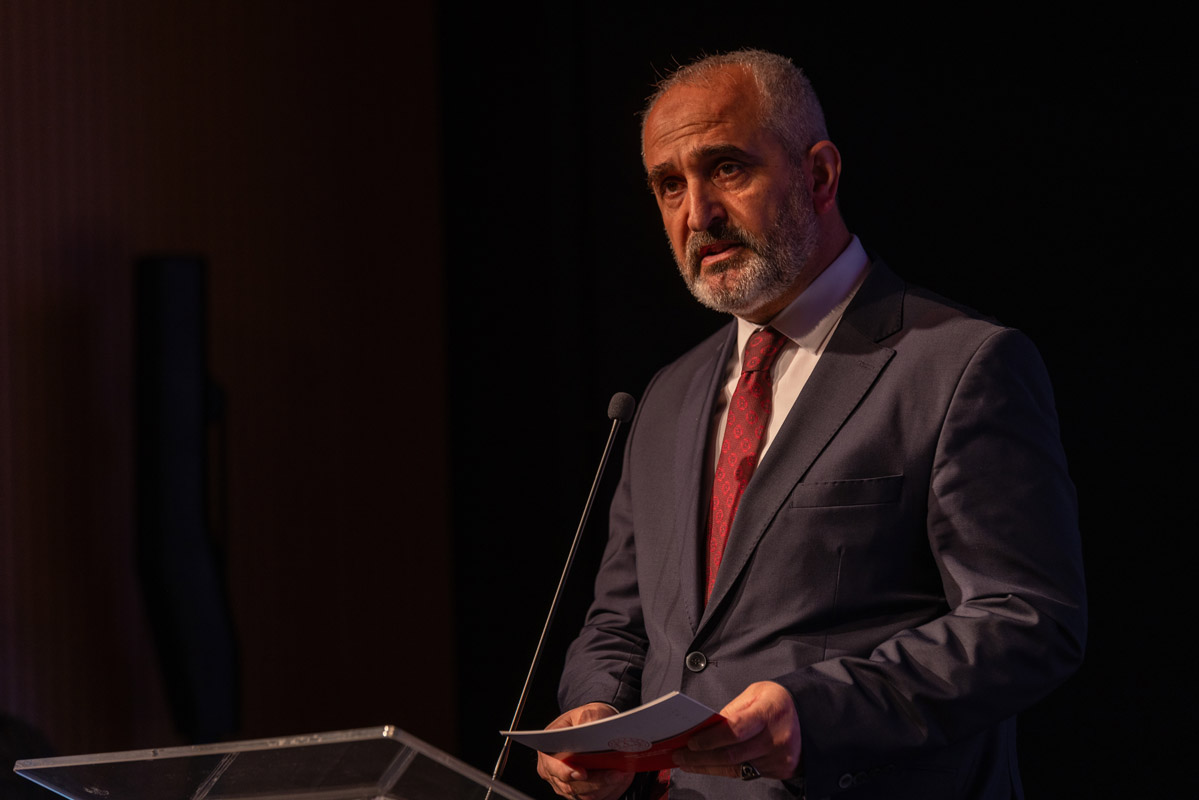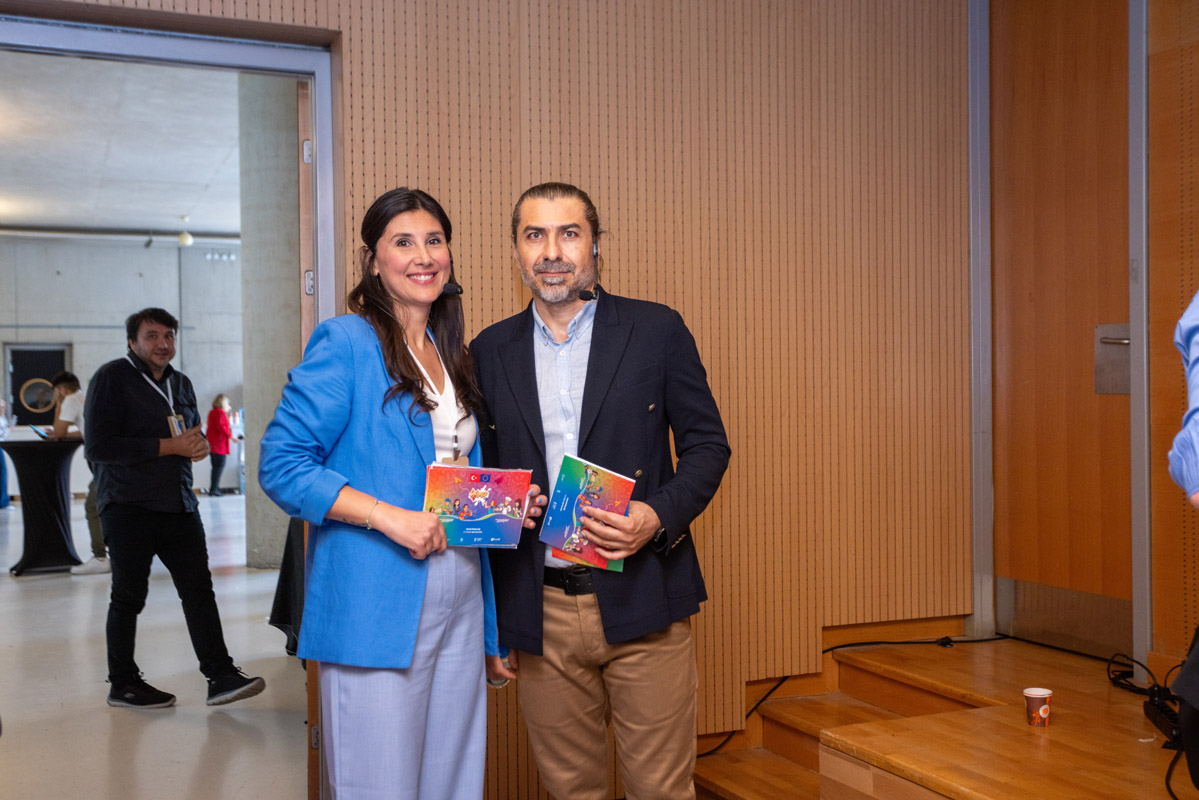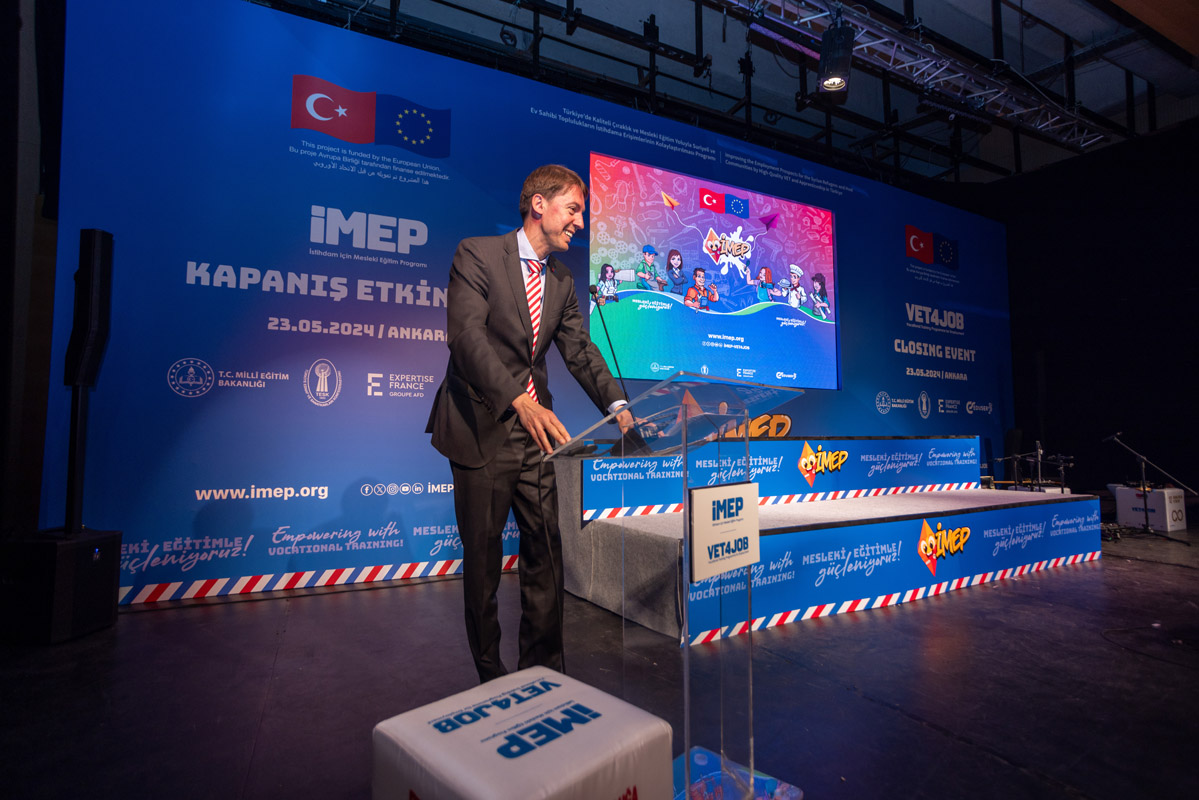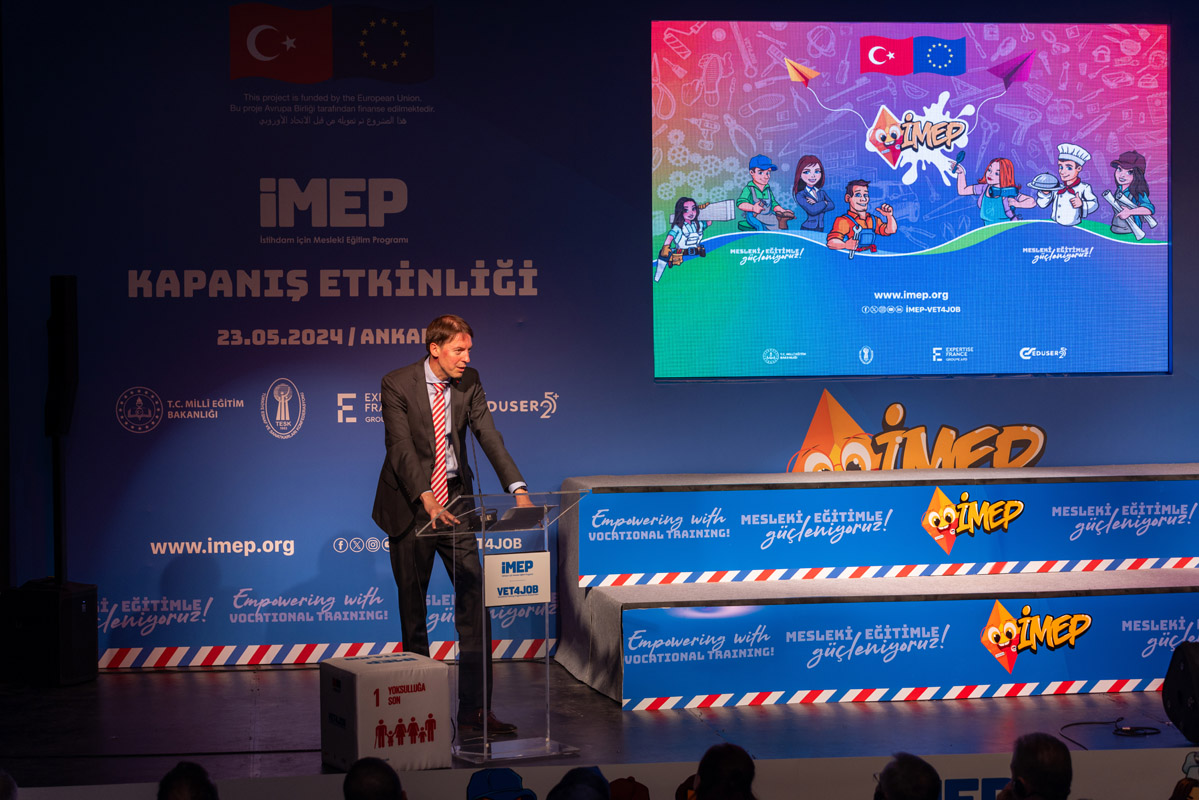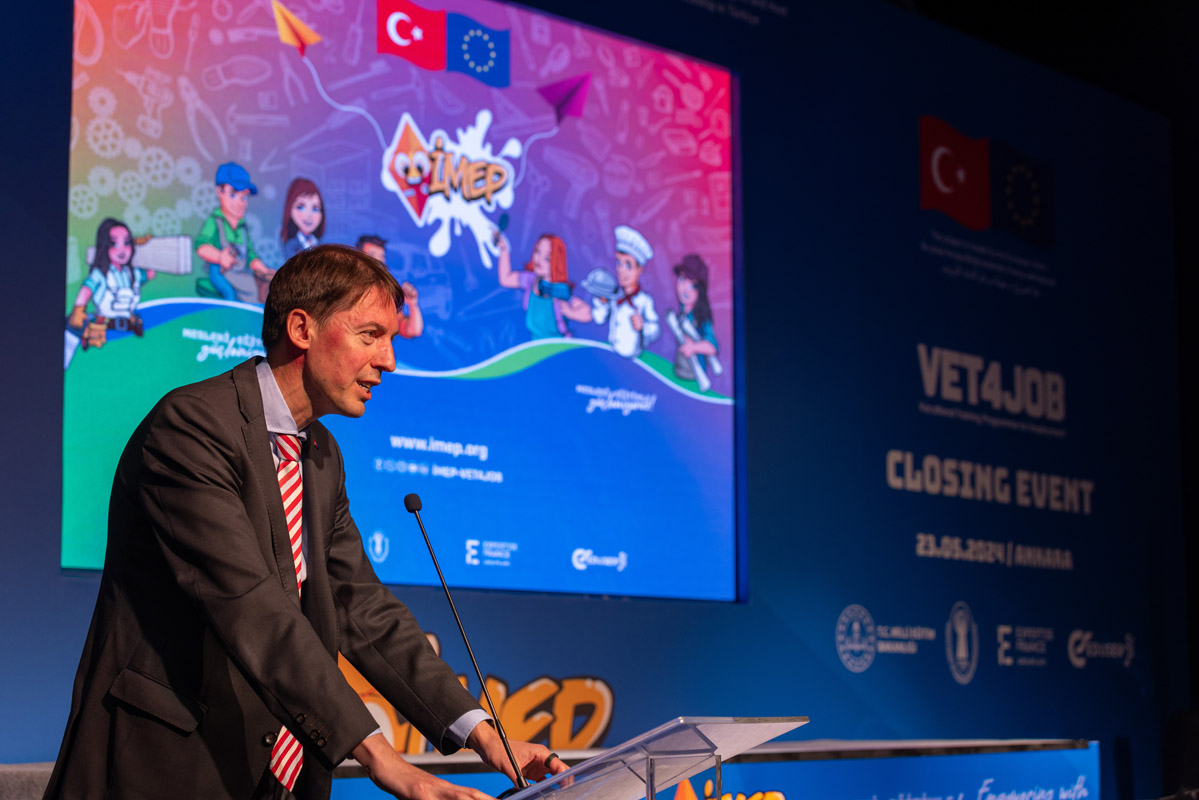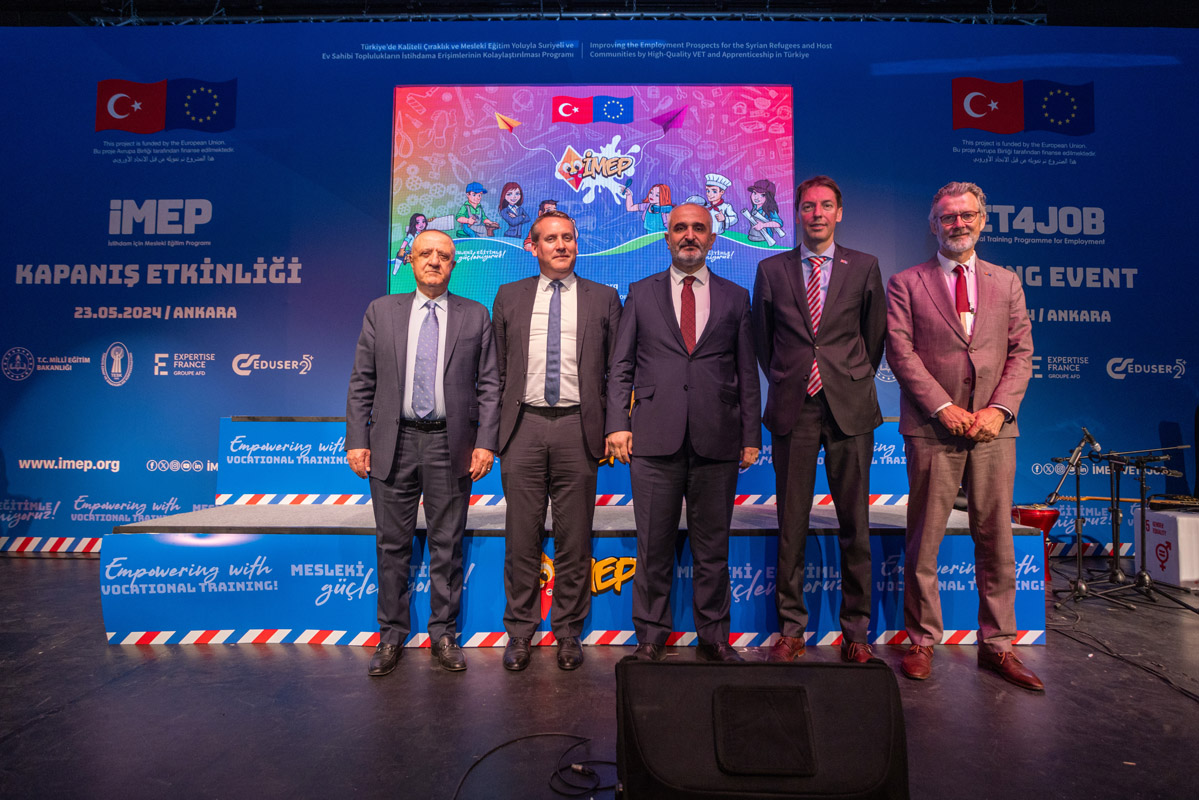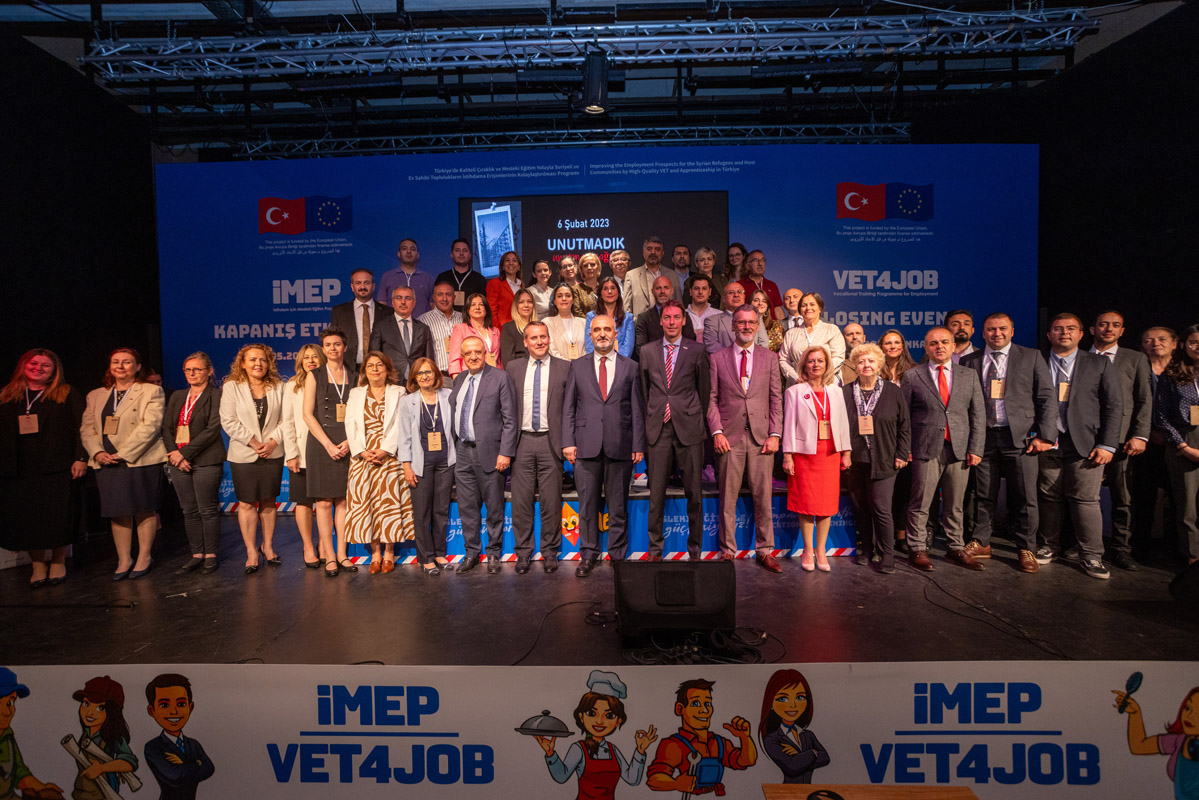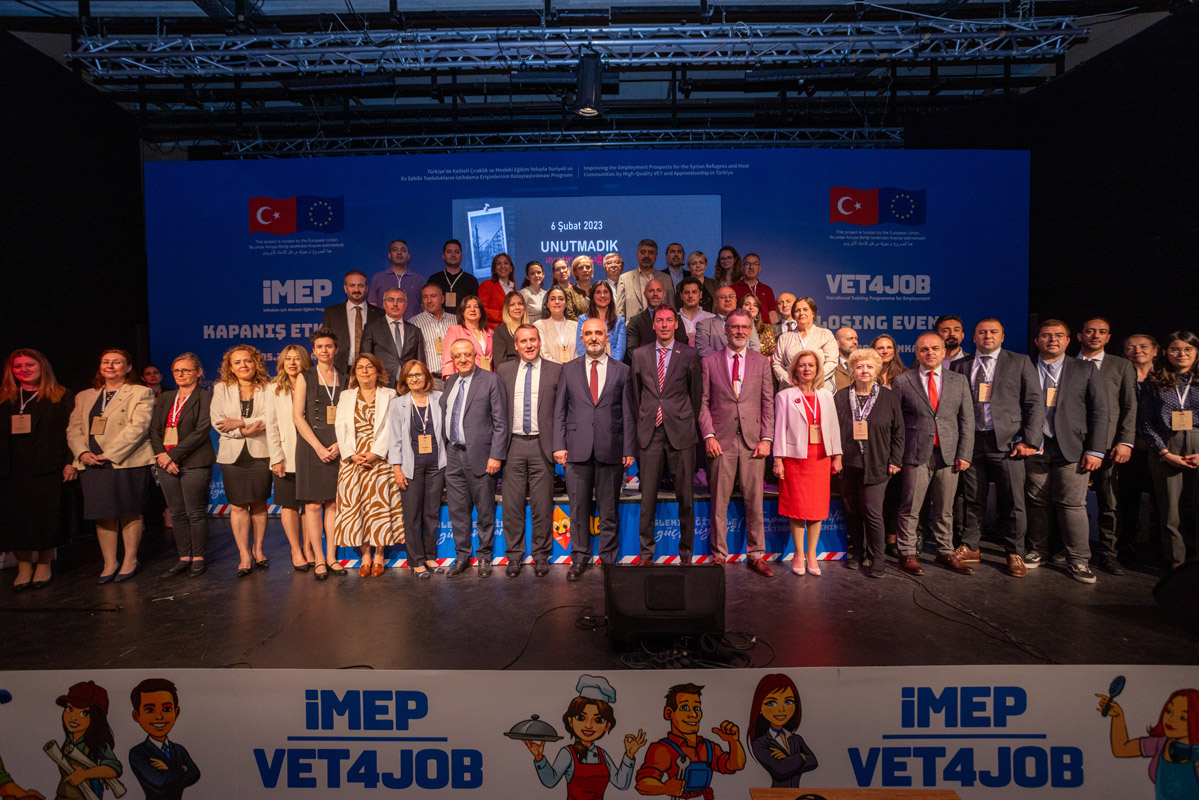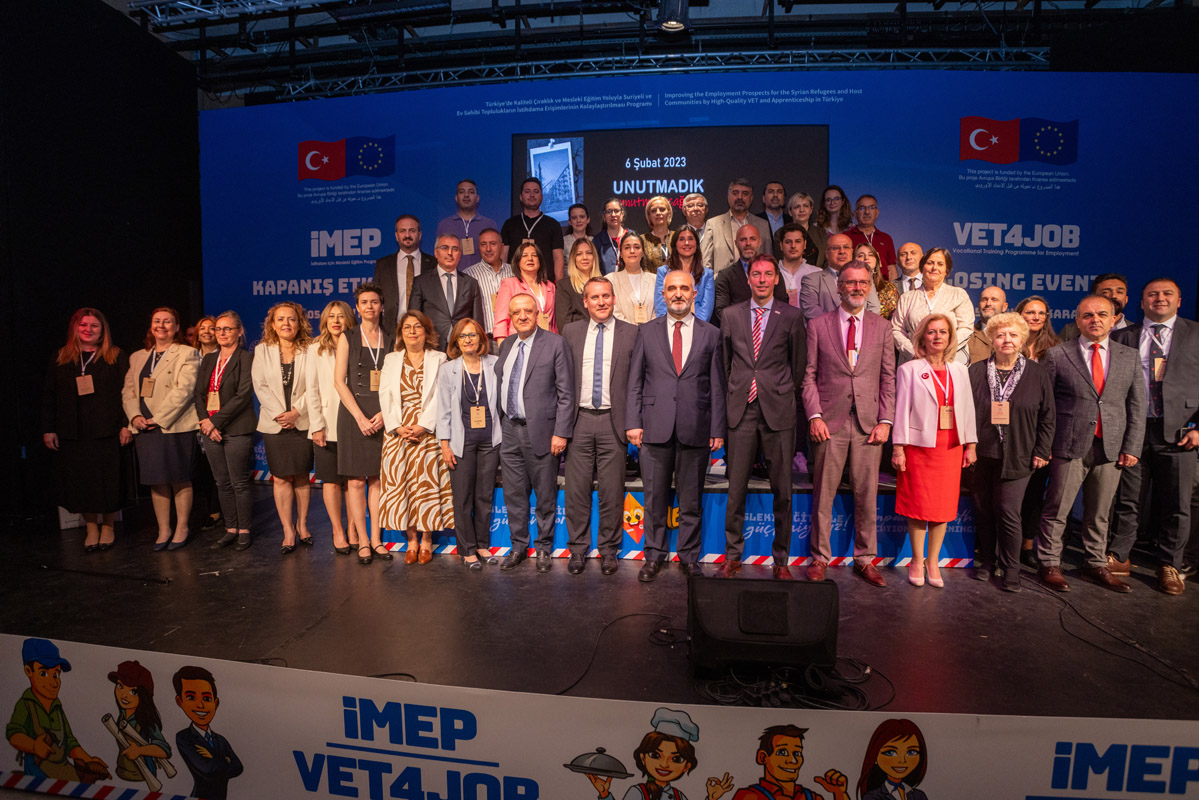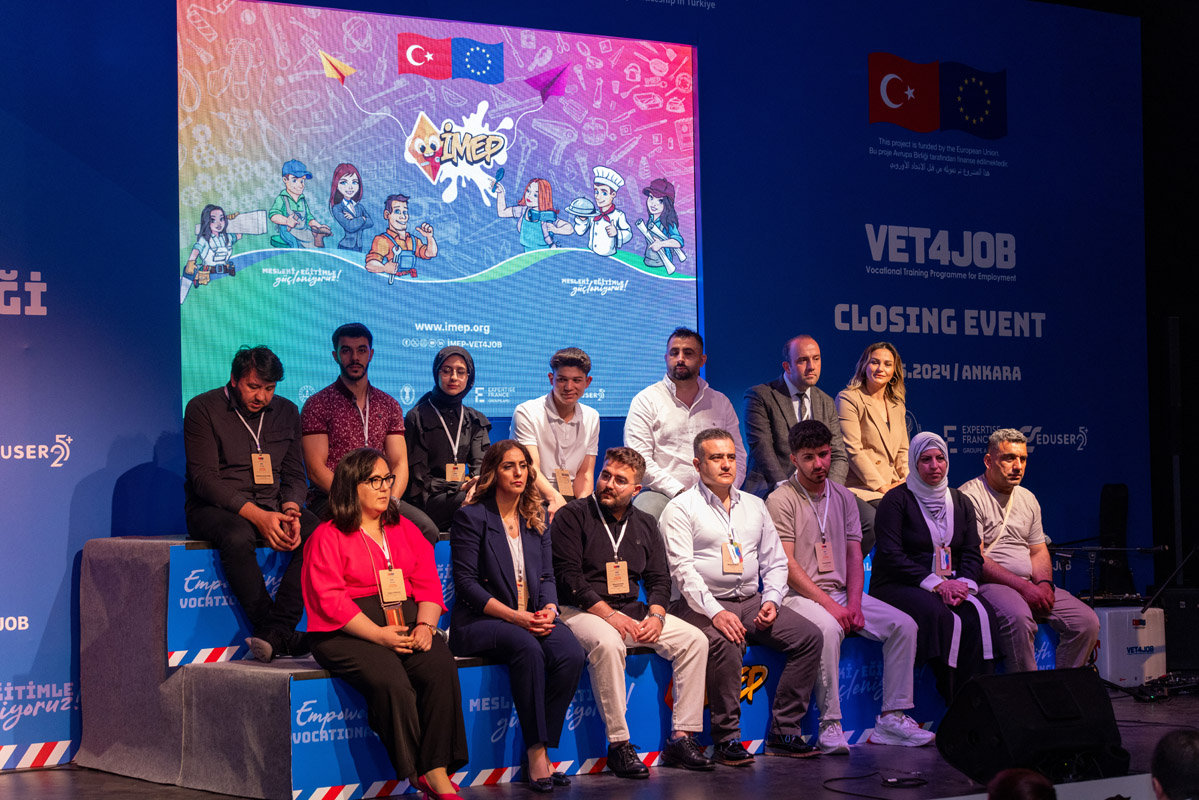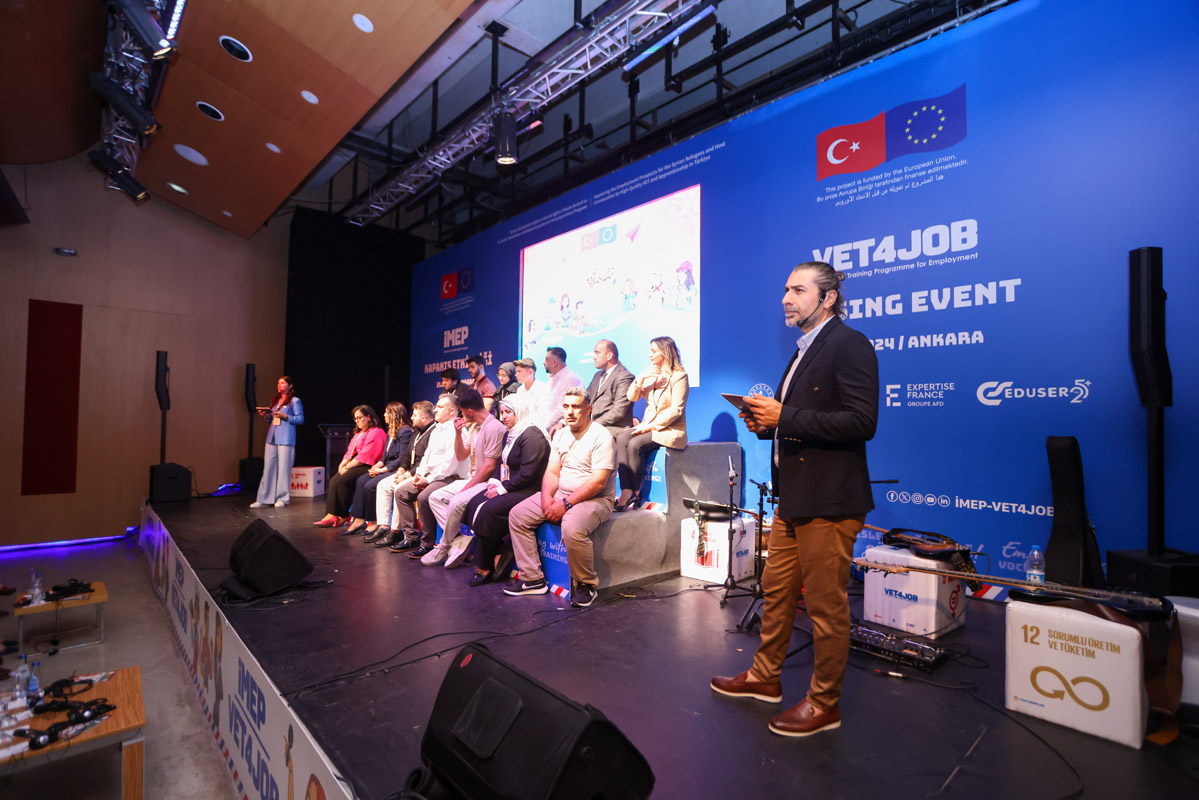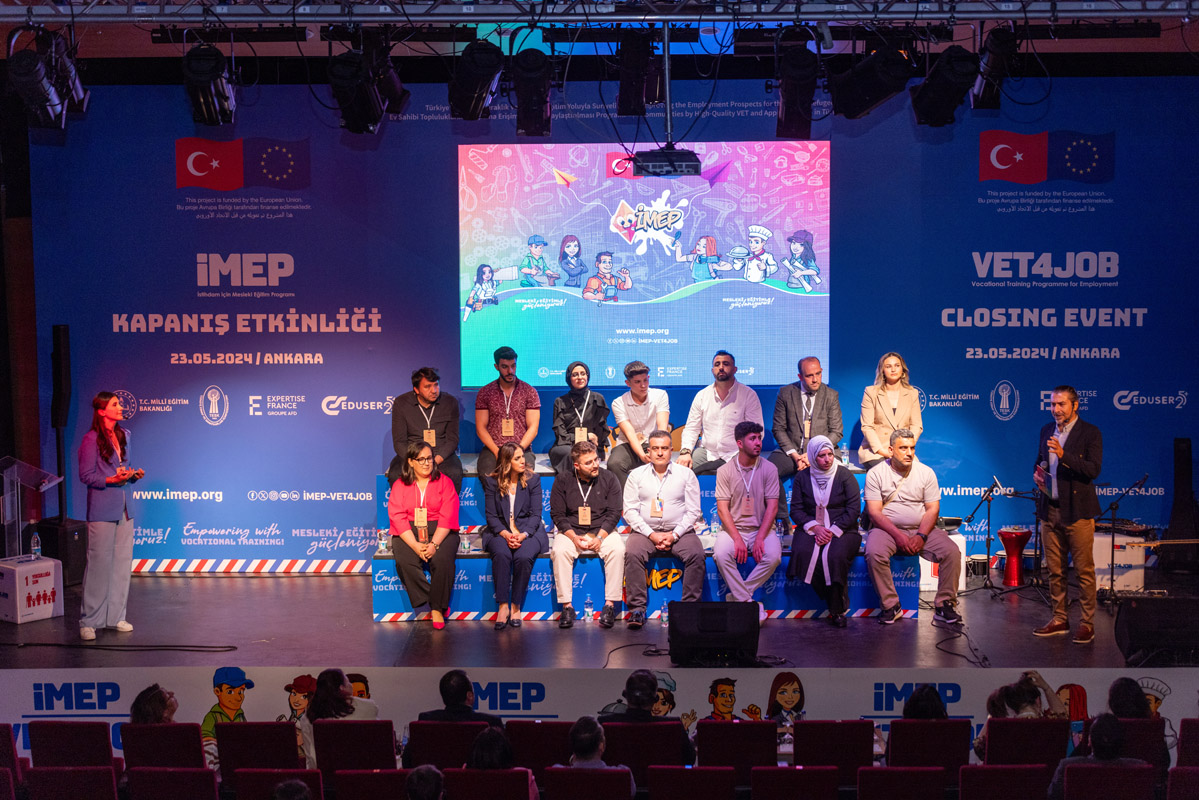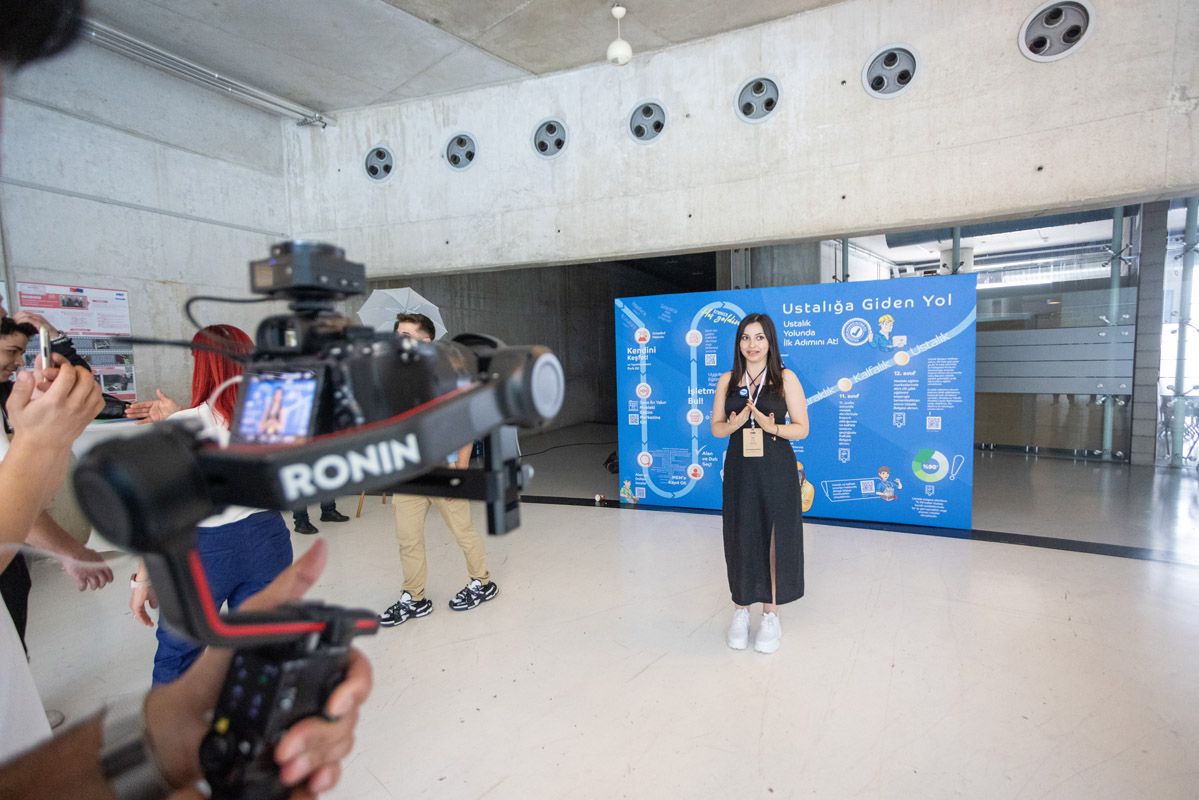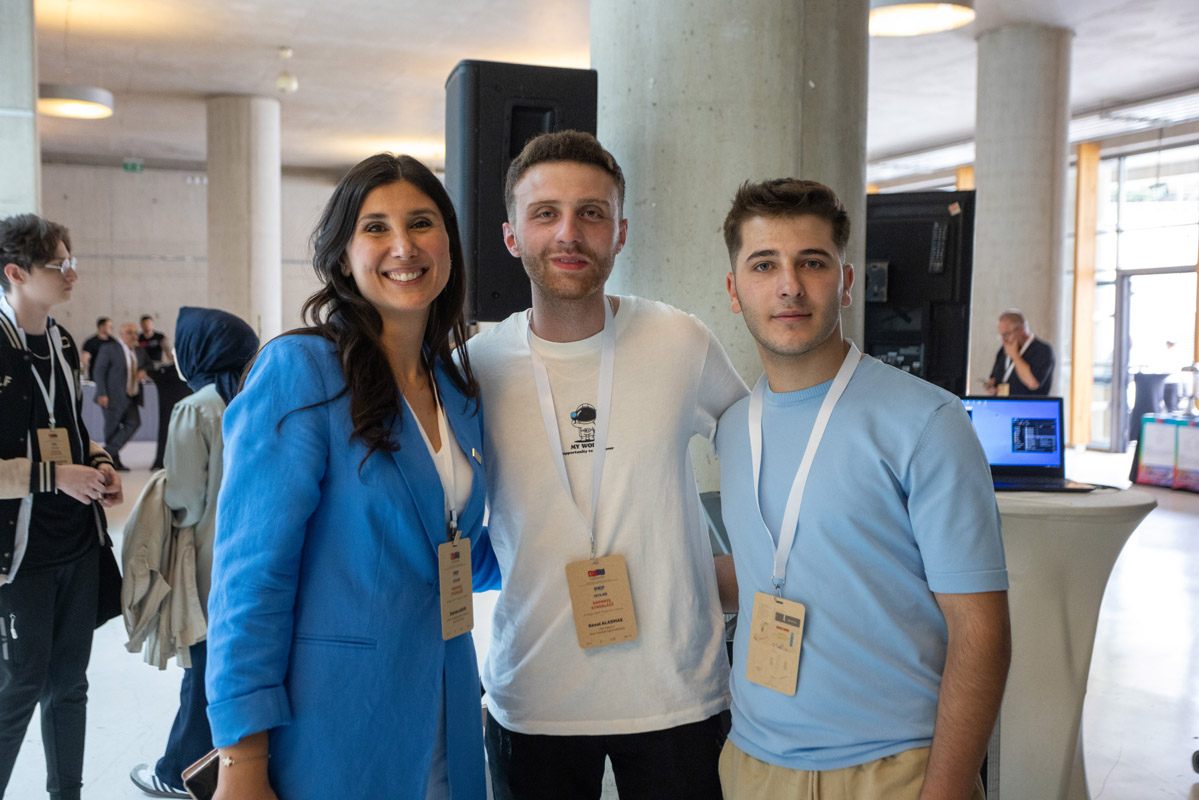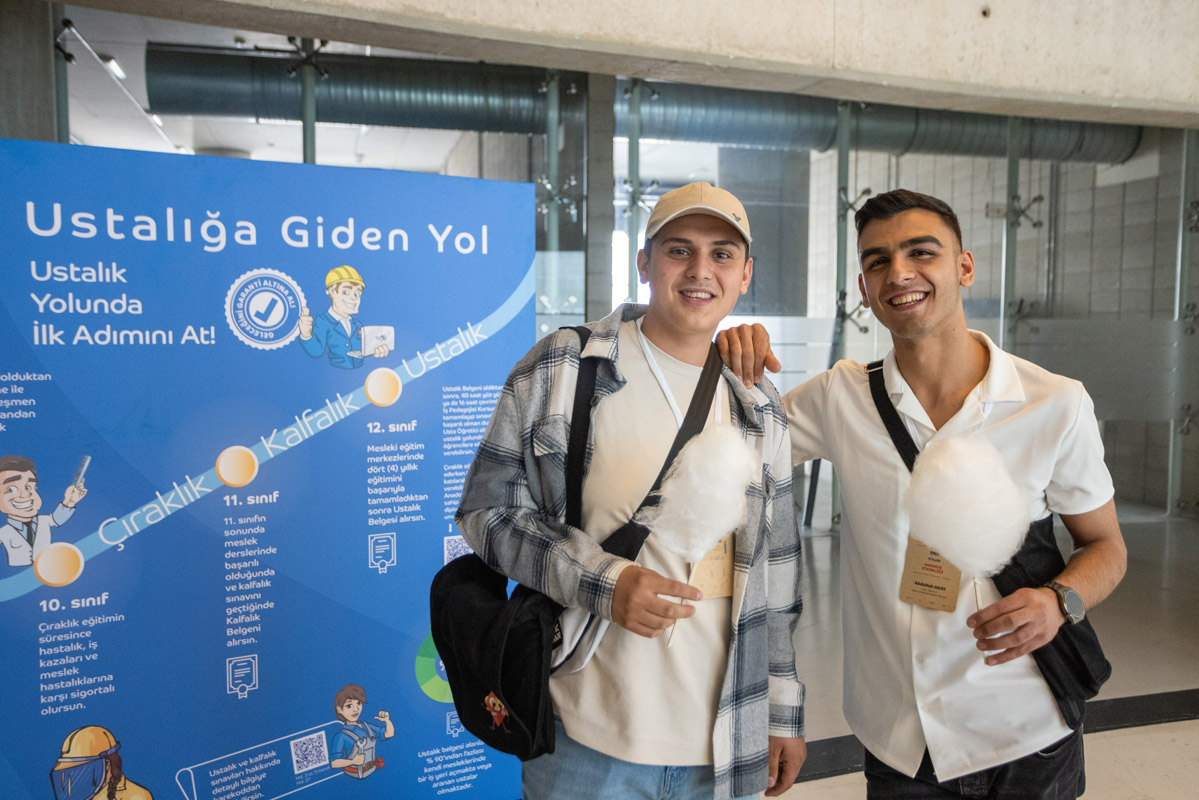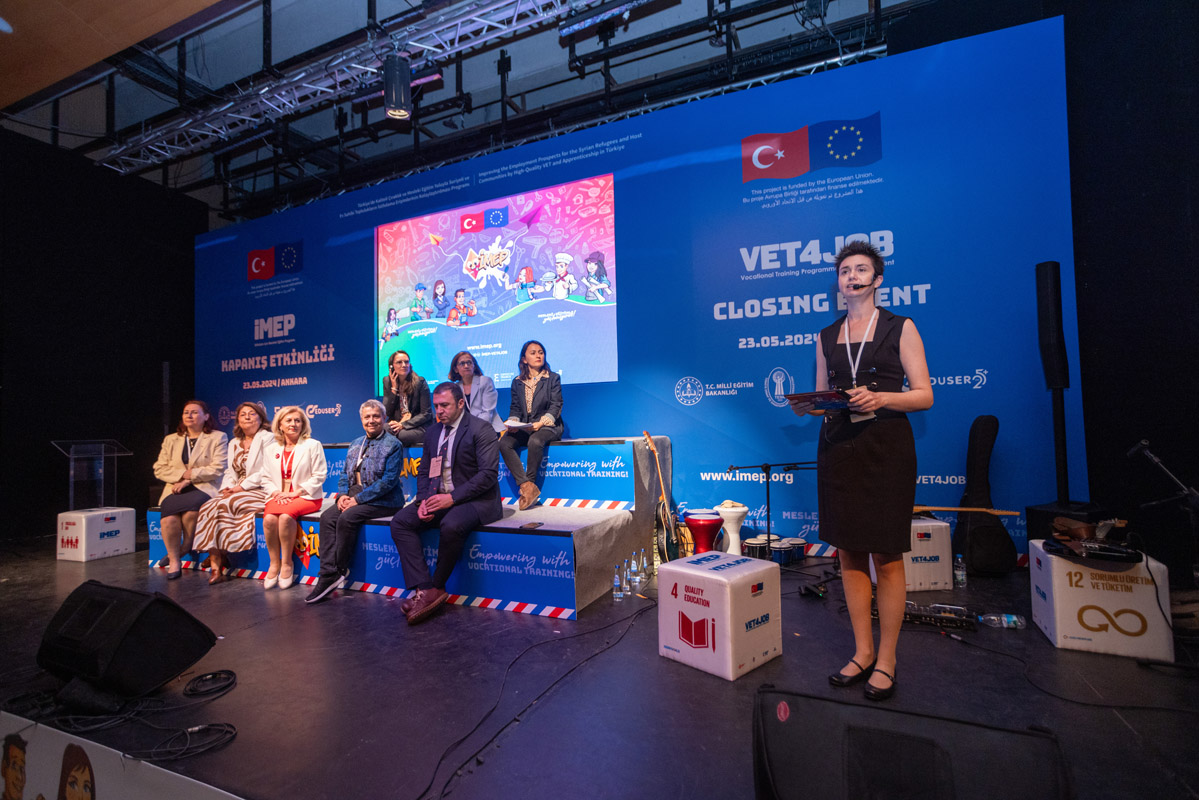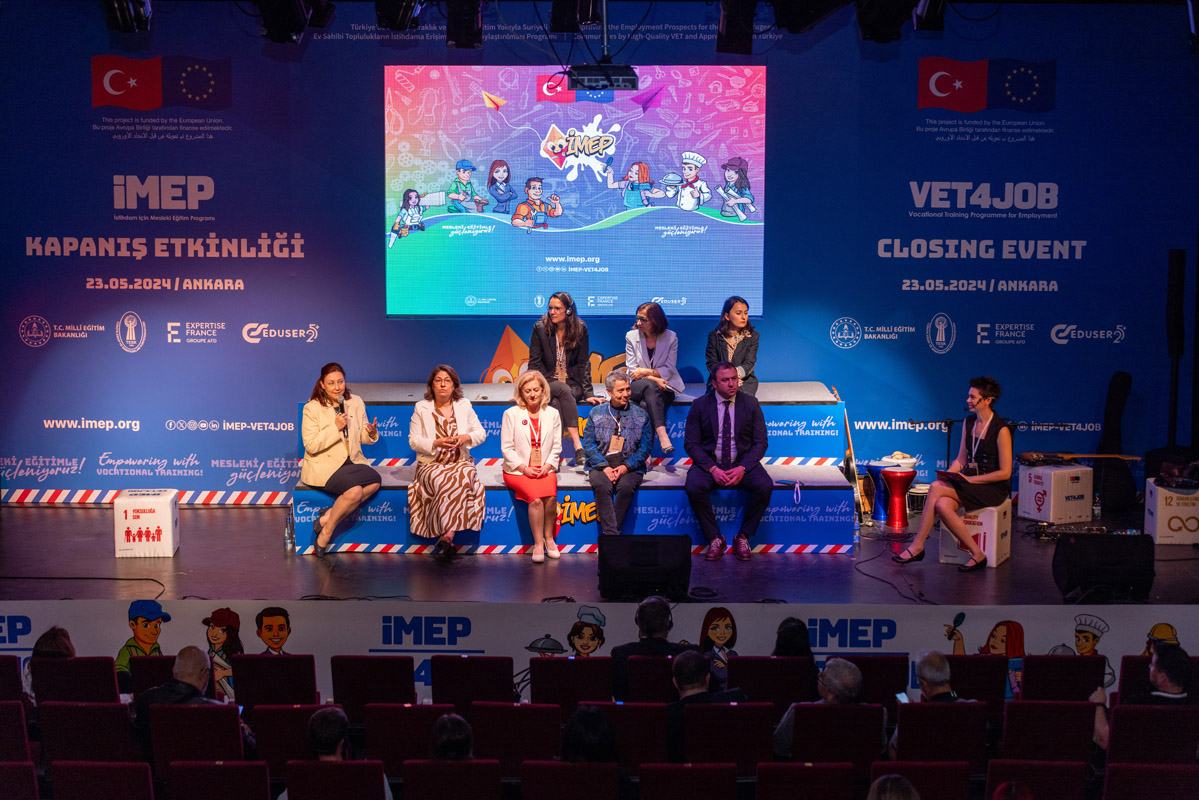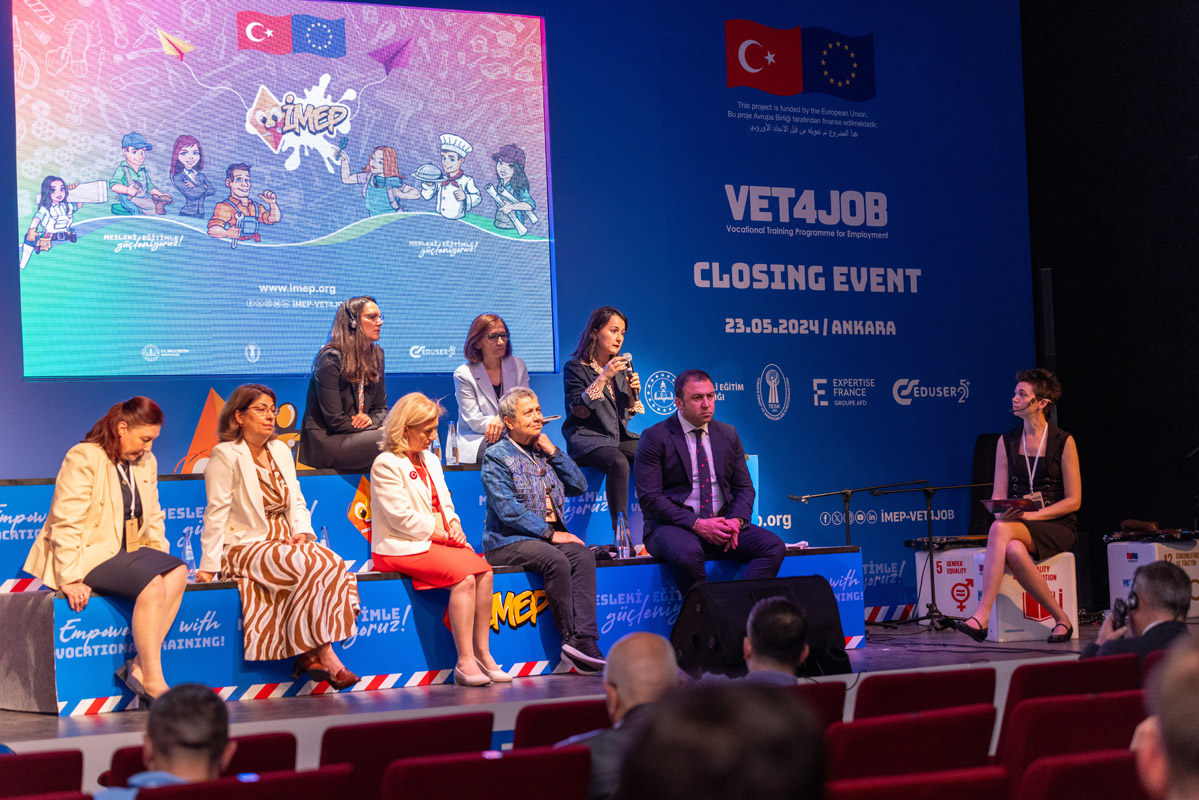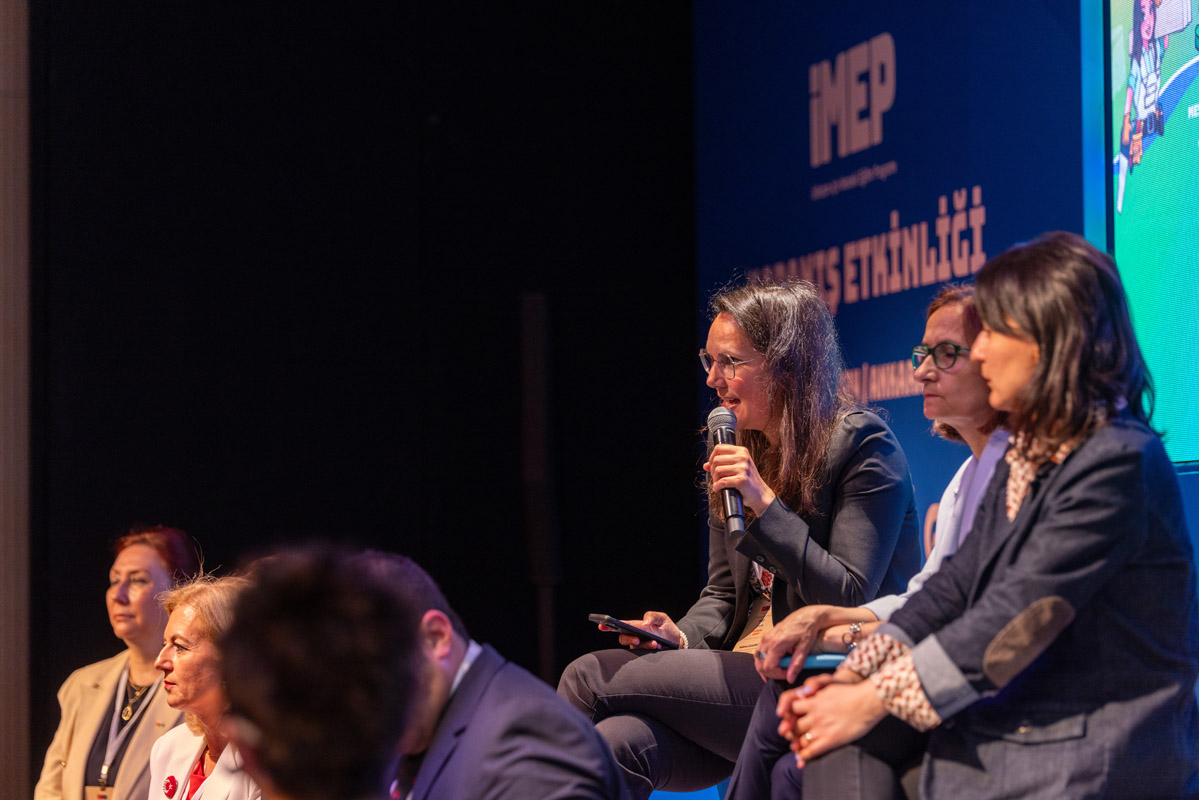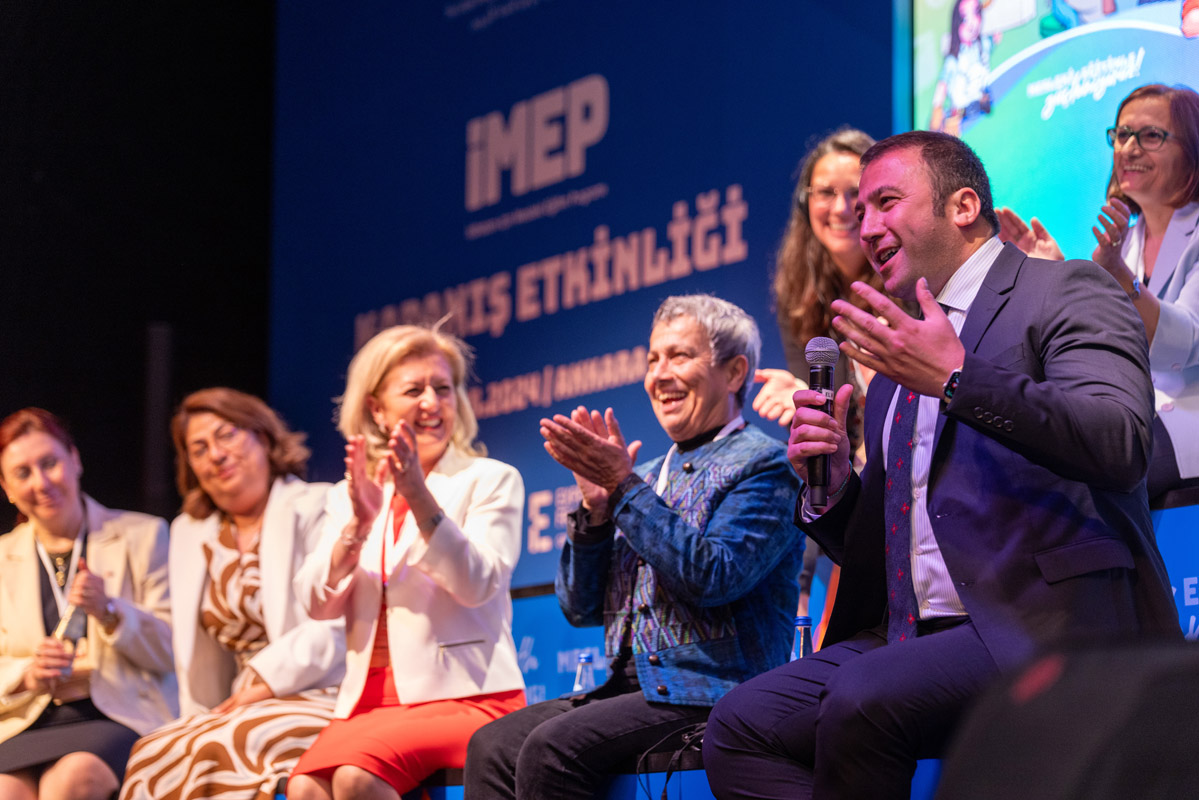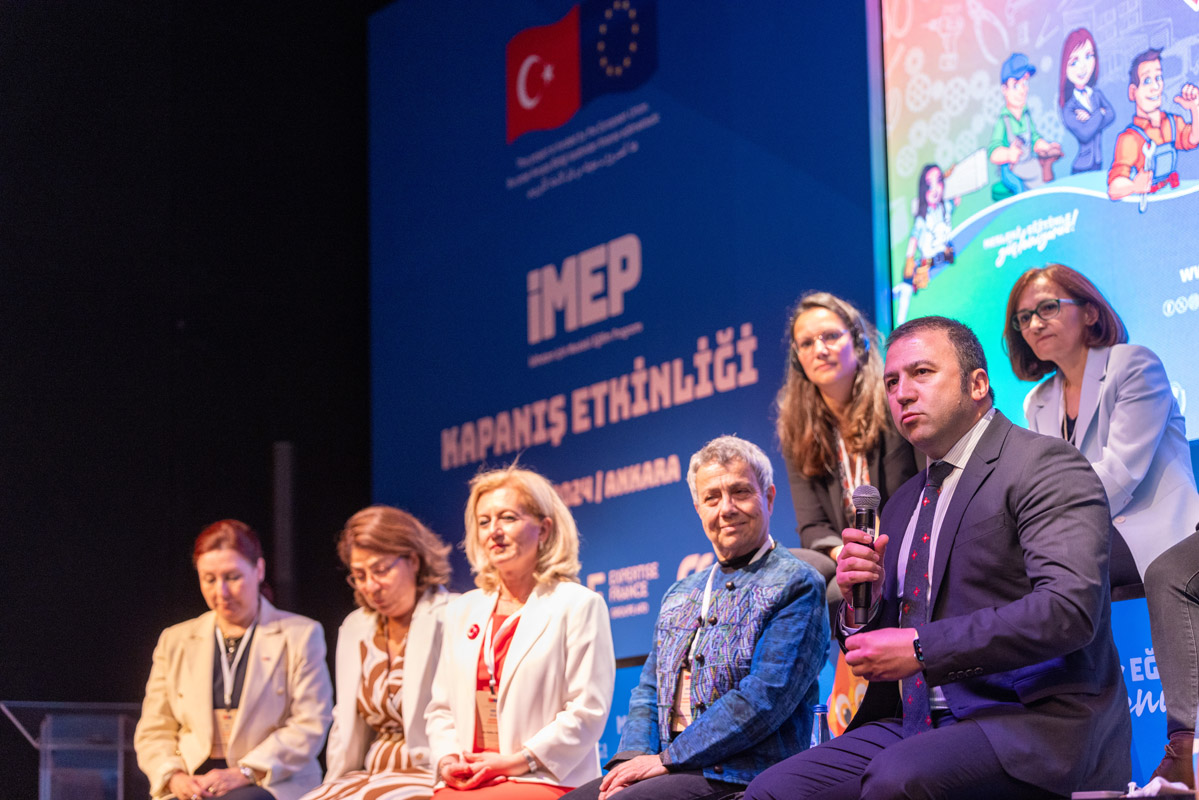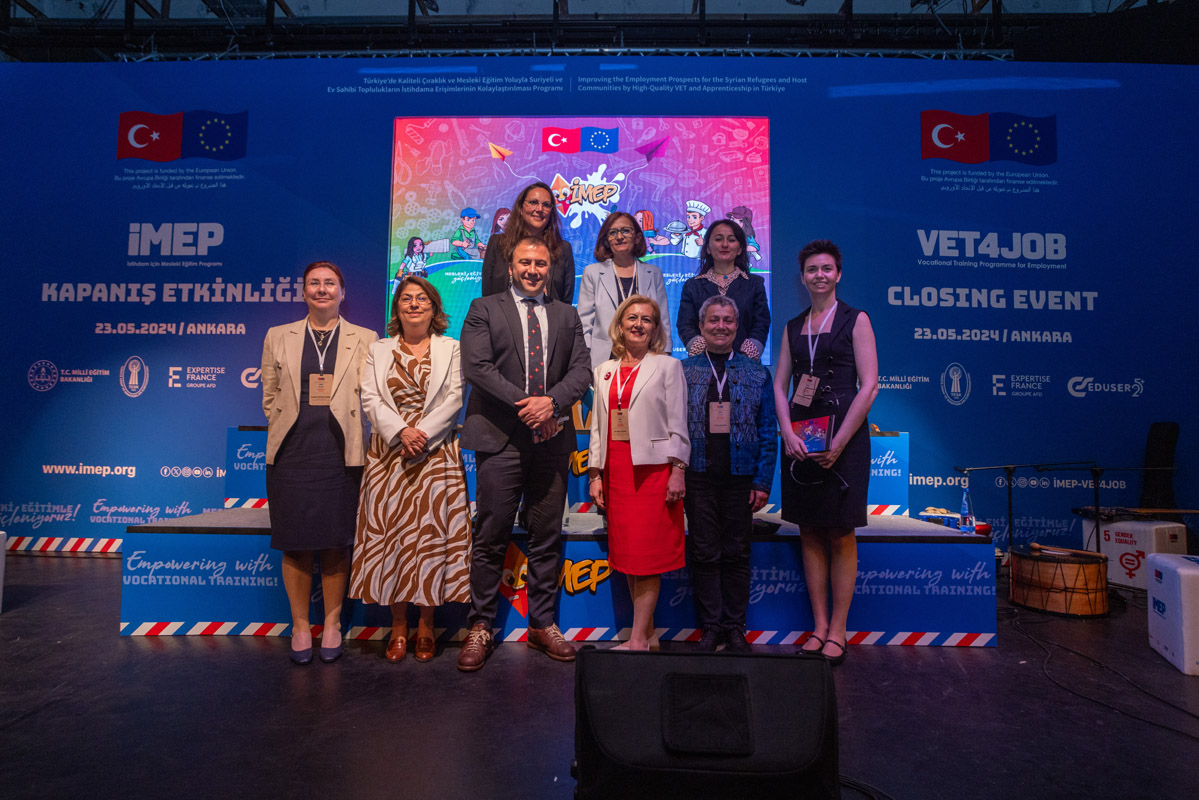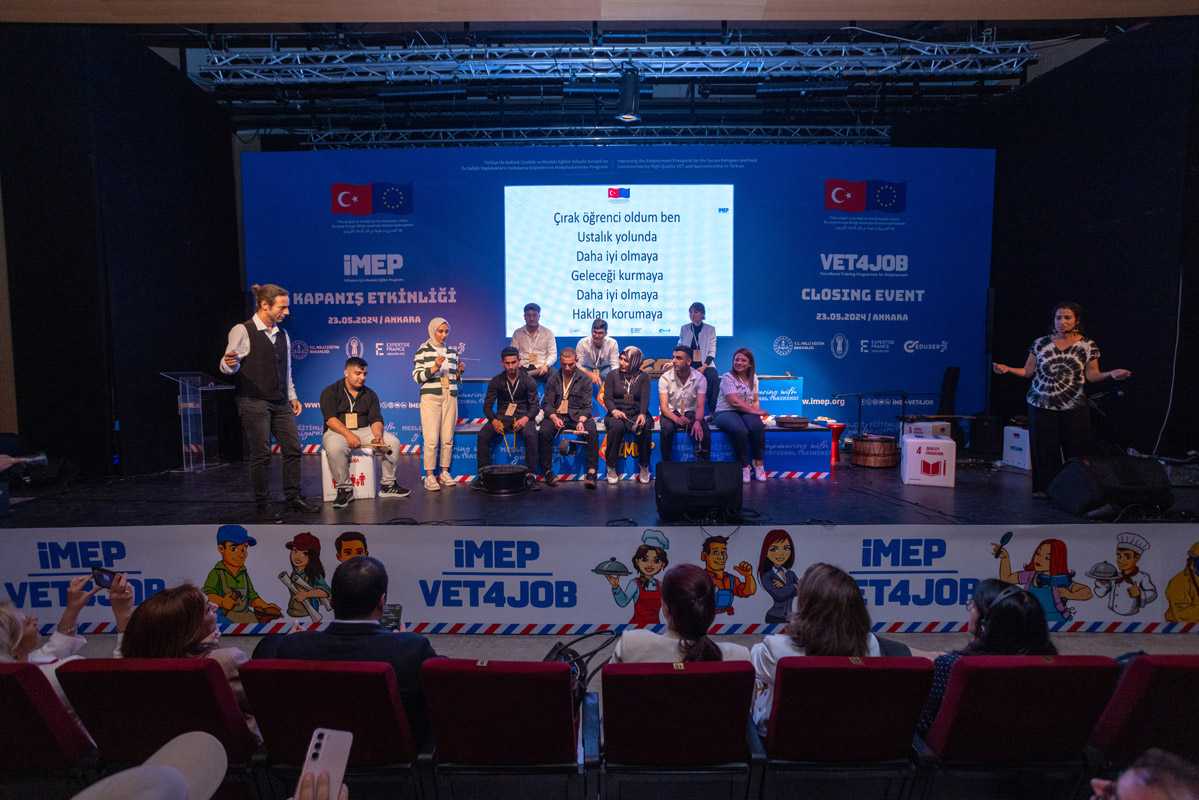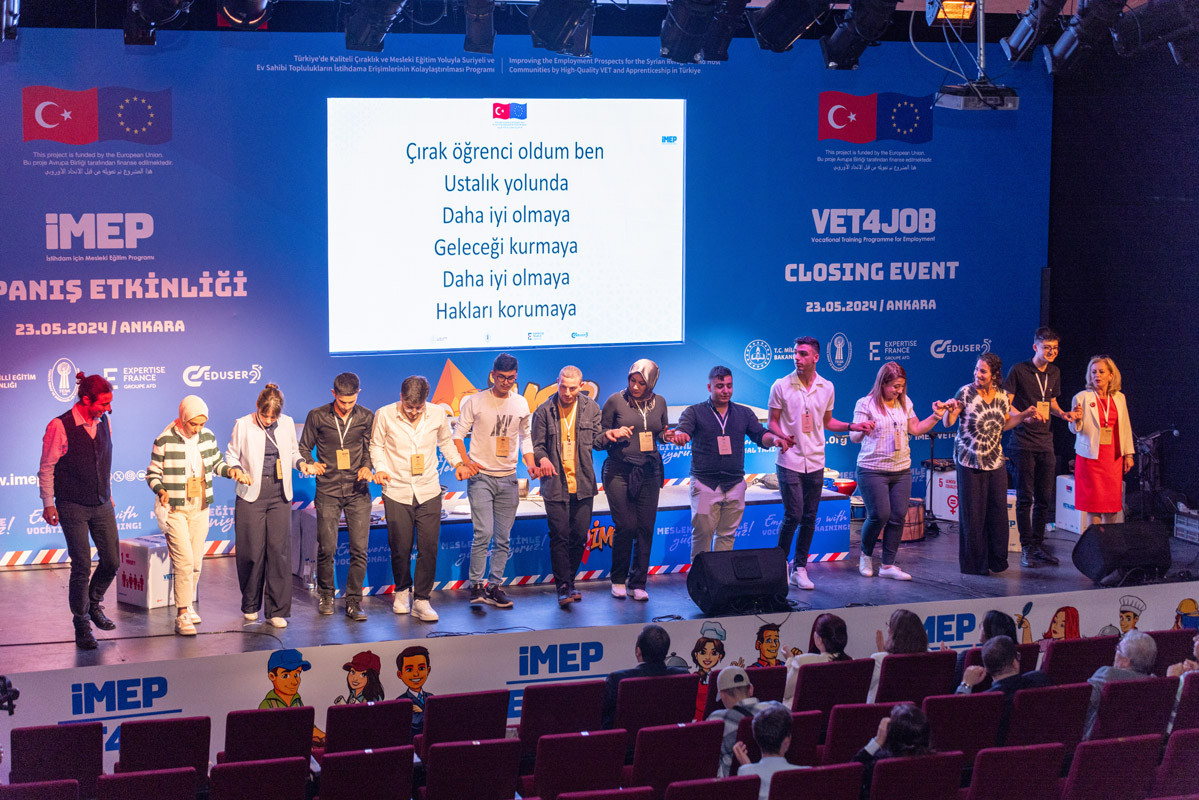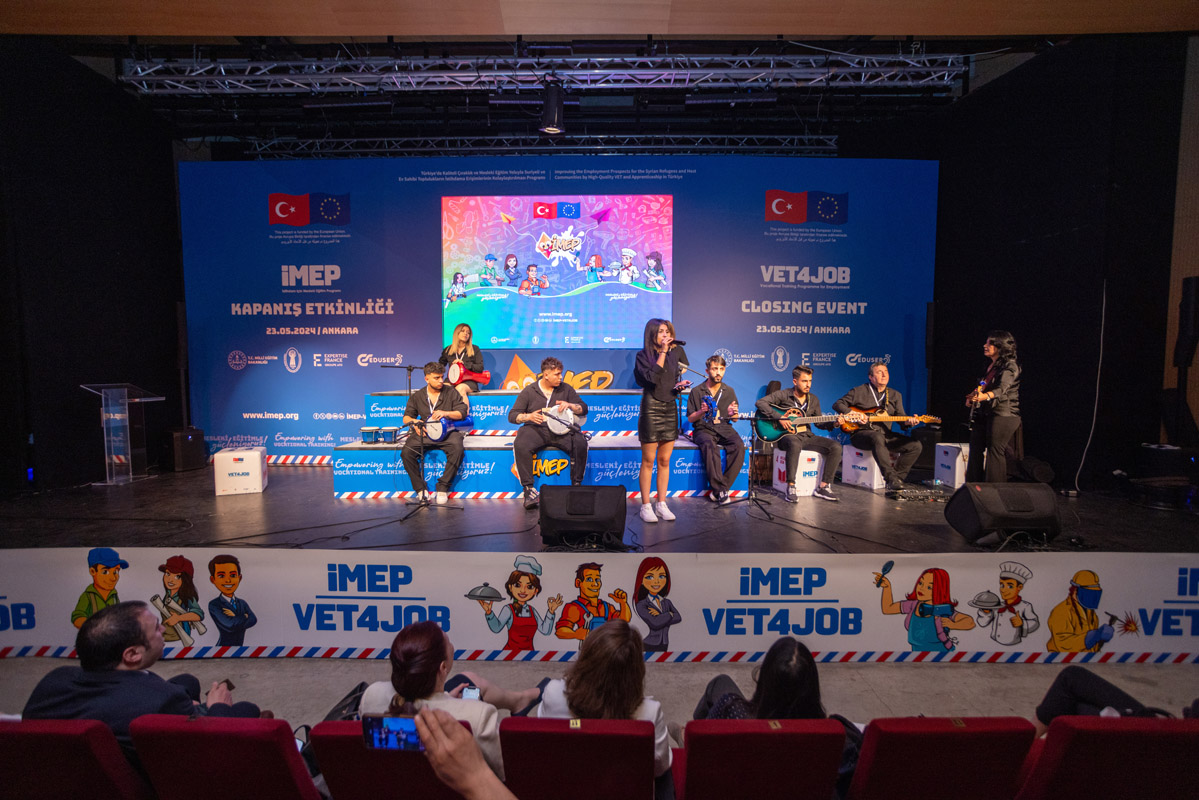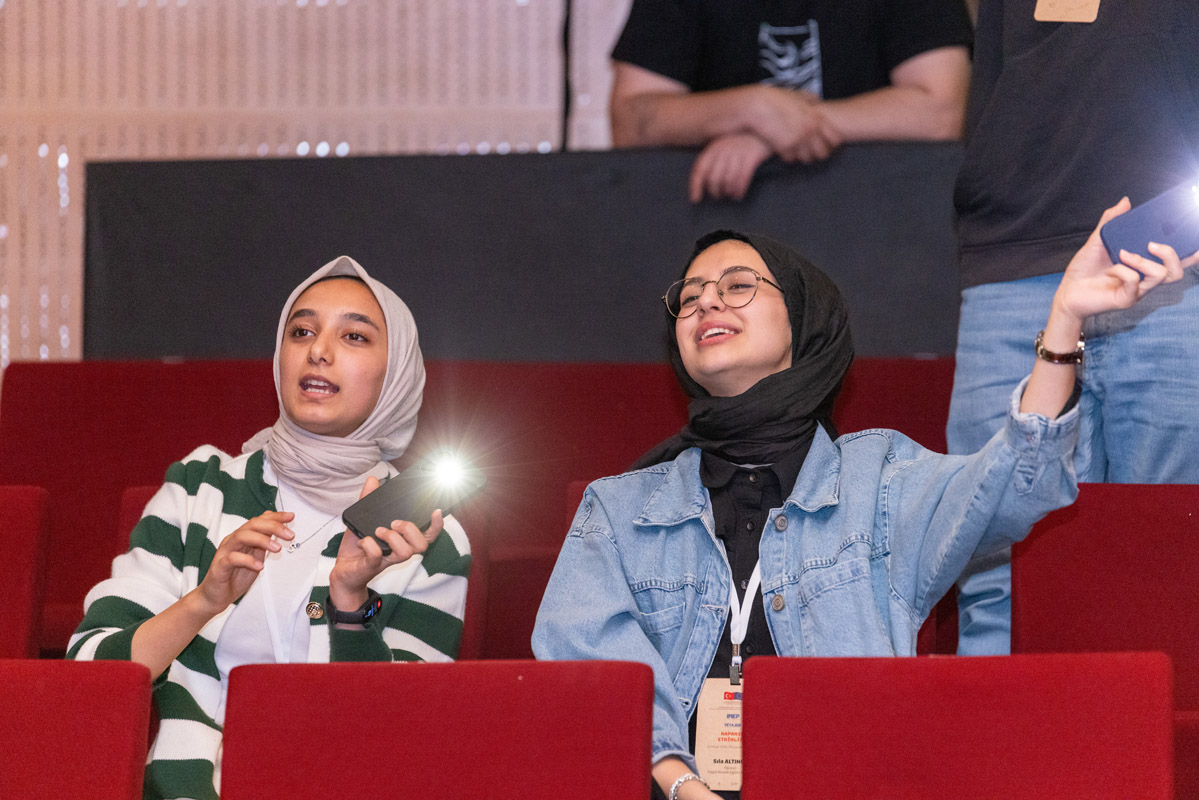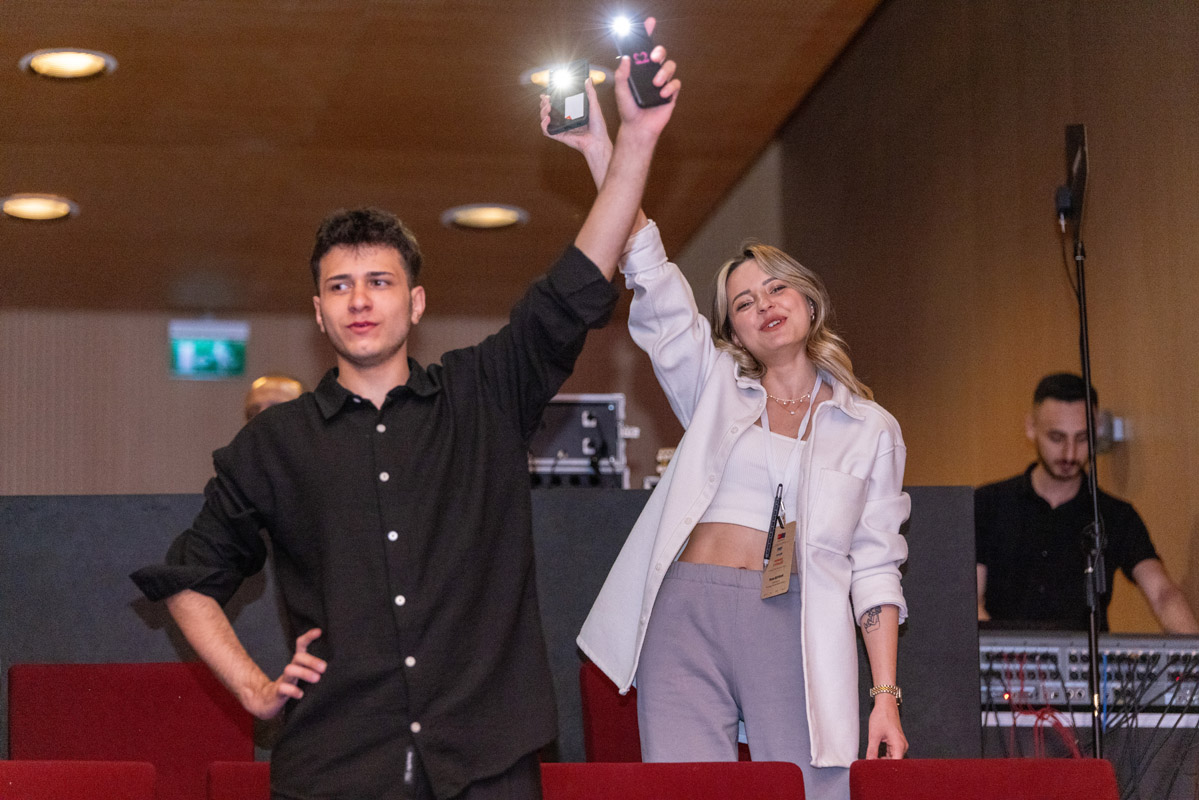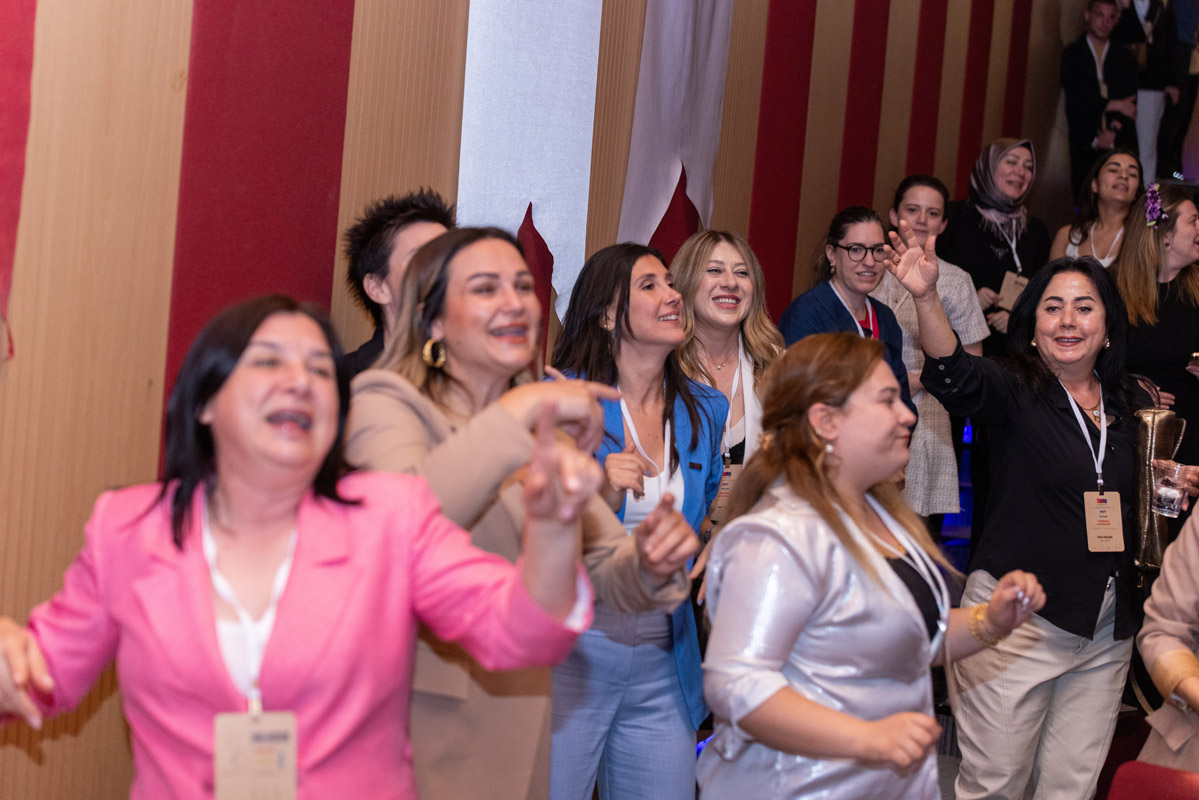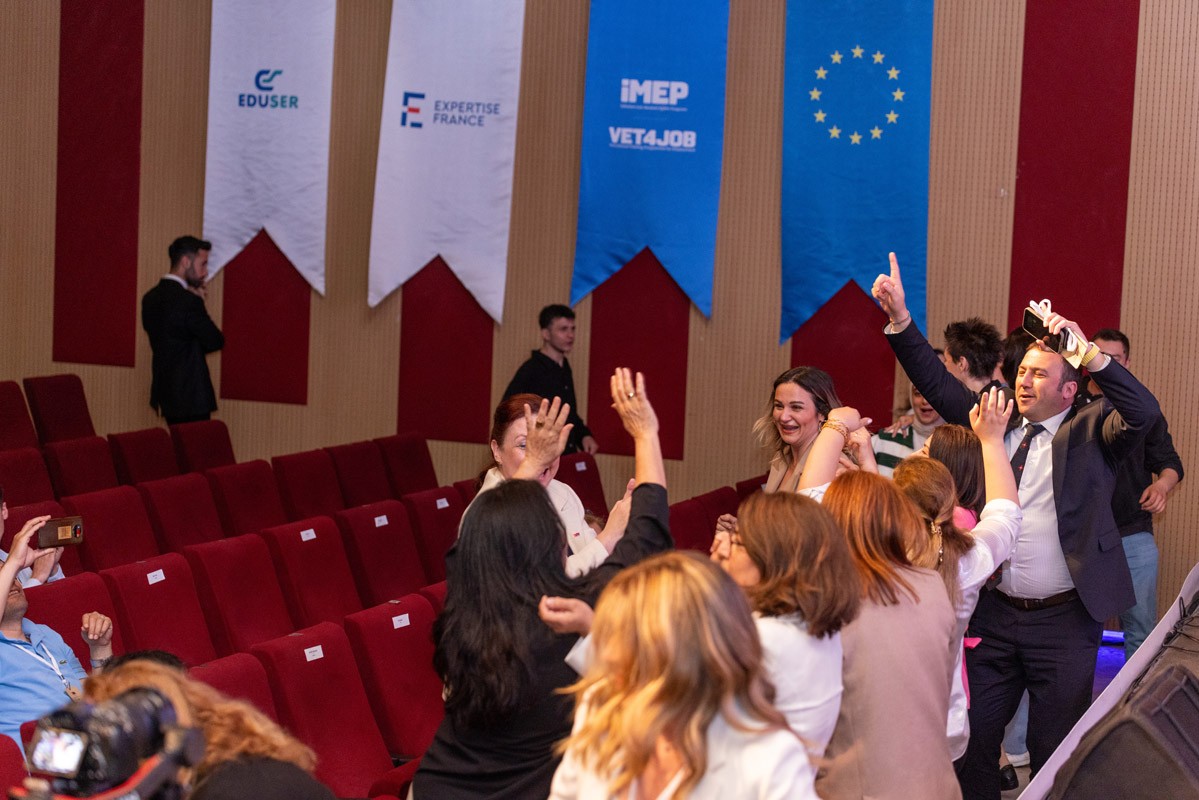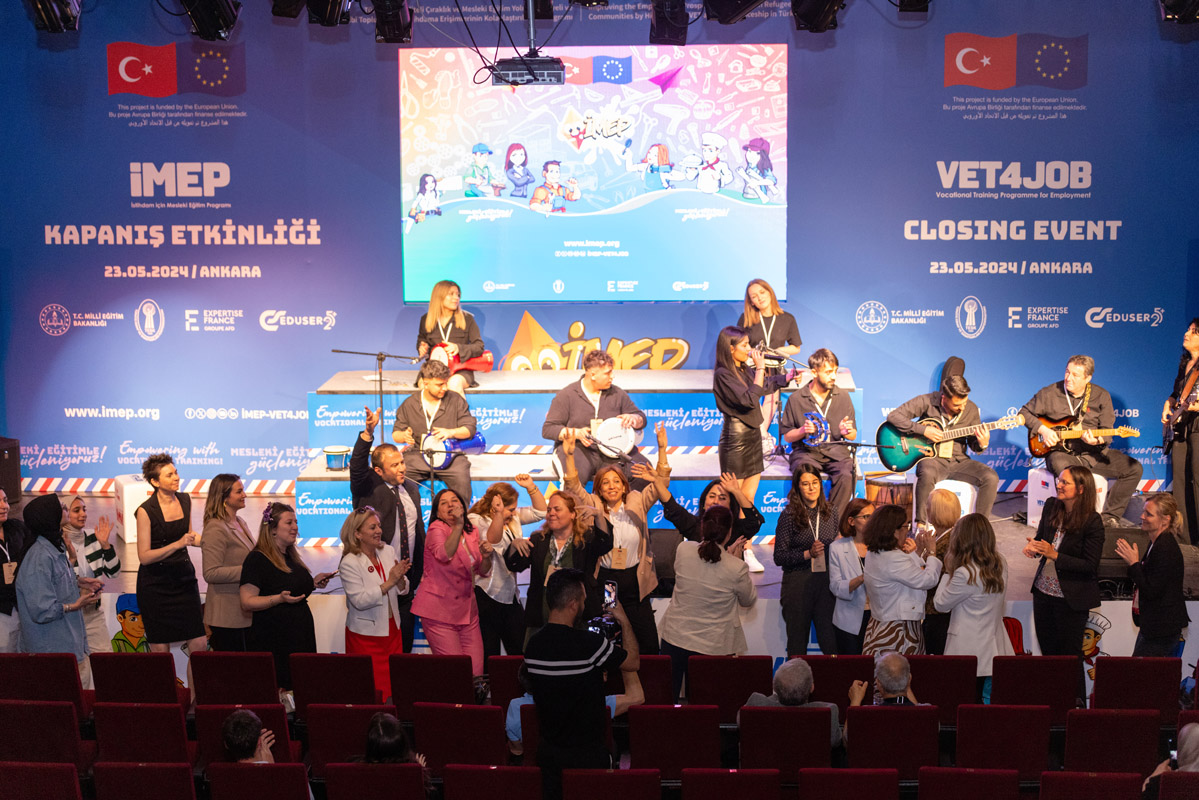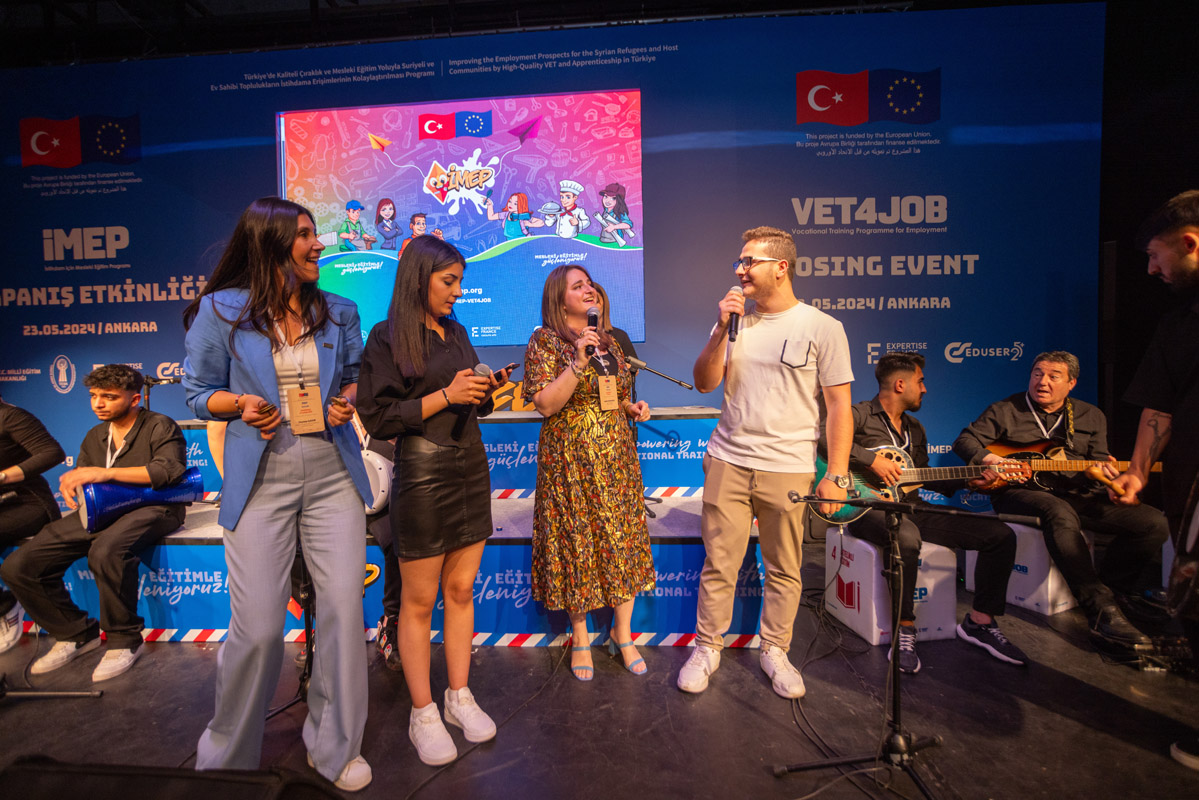
VET4JOB Closing Event
The Closing Event of the Vocational Training Programme for Employment (VET4JOB), which started on 1 January 2020 with the cooperation of the Ministry of National Education (MoNE) and the Confederation of Turkish Tradesmen and Craftsmen (TESK) with the support of the European Union, was held on 23 May 2024 in Ankara.
The event was attended by apprentice students, teachers, school principals, representatives of the unions of tradesmen and craftsmen chambers (ESOB) affiliated to TESK, vocational training course trainees and trainers from adult education institutions, as well as representatives of program stakeholder institutions and organizations, relevant public institutions and international institutions from 12 provinces where the program was implemented.
The closing event started with a musical performance by Turkish and Syrian apprentices. The opening speeches of the event were delivered by Jurgis Vilčinskas, Deputy Head of the Delegation of the European Union to Türkiye, Ali Karagöz, Director General of Vocational and Technical Education of Ministry of National Education (MoNE), Burhan Aksak, Deputy President of TESK and Xavier Cousquer, Director of Peace, Stability and Security Department of Expertise France.
In the first session of the event, the VET4JOB program was evaluated from the perspective of the beneficiaries. Program beneficiaries such as apprentice students, teachers and school administrators, vocational course participants, employers, etc. were given the floor to share the activities implemented within the scope of VET4JOB with the audience through the eyes of the beneficiaries. Different people whose lives have been touched by VET4JOB shared their experiences with the program.
In the second session, VET4JOB, which was likened to a hero, discussed the process of setting out, the dimension of the fight against child labor and the art and social cohesion activities developed in this journey. In this session, the experience from the perspective of MoNE and TESK was also evaluated, while plans for vocational courses in the coming period and the roadmap for VET4JOB 2 were shared.
Different exhibitions and experiential areas took place at the VET4JOB Closing Event.
Within the framework of “Common Good and Solidarity”, the Solidarity Exhibition area hosted posters in Turkish and English of socially beneficial projects with an ecological approach that brought together apprentice students, teachers and businesses.
Participants shared their feelings and thoughts on the Memorial wall, which was prepared similar to the graffiti works done on school walls.
For those who prefer apprenticeship training, the Road to Mastery wall revealed what kind of a process awaits students graduating from secondary school in the four years they will discover themselves and acquire new skills during their apprenticeship training.
Provincial Vocational Course Stands: 12 provincial stands were set up to show what was produced and what kind of skills were acquired in the vocational courses organized in the VET4JOB implementation provinces, and the products from the provinces were exhibited here.
The Virtual Stage offered an experience that allowed participants to interactively color the graffiti wall in a virtual environment. They were also given the opportunity to watch the videos produced during the program in a different ambiance.
With the Vocational Education Experiencing Workshops, participants had the opportunity to participate in workshops at different booths and took with them the keychains, bracelets, small paintings made of mosaic stones and the stones they had patterned with to commemorate the day.
The event ended with a performance where apprentice students made their voices heard accompanied by music.
Tangible Outputs of VET4JOB
In line with the needs of the labor market, VET4JOB supported skills development through apprenticeships and vocational training and had a tangible impact on the following topics:

In 12 provinces (Adana, Ankara, Bursa, Gaziantep, Hatay, İstanbul, İzmir, Kahramanmaraş, Kayseri, Kocaeli, Konya, Konya, Mersin), Provincial Directorates of National Education, 36 VTC/MTALs (Vocational Traning Centers and Vocational Technical Anatolian High Schools), 5 training centers providing vocational training for adults, unions and chambers of tradesmen and craftsmen affiliated to TESK, and public and private adult education institutions worked in close cooperation. Through VET4JOB outreach activities, a total of 44,445 people were reached and informed about apprenticeship training and vocational training opportunities for adults and directed to appropriate support services.
In 12 provinces, Turkish and Syrian youth who were identified as not attending formal education were referred to vocational training centers. The young people who started vocational training learned their professions in the kitchen by combining the theoretical education they received at school with practical training in enterprises.

Through apprenticeship training, which is a type of formal education, young people were enabled to continue their vocational training under state protection, benefiting from the rights of apprentice students, and to be better prepared for employment. Information activities were carried out on the rights of apprentice students, and communication activities were carried out to raise awareness on the harms of child labor.

Within the scope of the program, food card and stationery set support was provided to students enrolled in apprenticeship training. With this support, it was aimed to encourage young people to apprenticeship training and support students to continue their education processes.

Through VET4JOB, Turkish and Syrian adults who want to learn a profession or improve their professional skills were directed to appropriate vocational courses and their access to employment was facilitated through vocational courses in various fields. Through development and adaptation courses, it contributed to the retention and advancement of those already working in employment. A holistic service approach was followed to increase the impact of vocational training and support people’s employment-related goals as much as possible. Within the scope of this approach, trainees were provided with services such as pre- and post-training language courses, vocational counseling, career guidance, recognition of prior learning, registration with Turkish Employment Agency (İŞKUR), work permit support, in addition to vocational training in their chosen field. As of April 2024, 808 people were provided with employment/income-generating job opportunities.

Work was carried out to address small-scale maintenance and repair deficiencies of schools, prepare schools for face-to-face training after COVID-19 and create additional capacity to enroll more apprentices. Necessary activities were also carried out to create or renovate cafeterias and social areas. In addition, in order to ensure that apprentice students in the institutions within the scope of VET4JOB can receive training with new technology, computers, 3D printers and training sets for educational purposes were provided and delivered to the institutions along with furniture equipment. In addition, capacity building trainings were organized for principals and teachers working in VTC/MTALs within the scope of VET4JOB, reaching a total of 492 people.

In order to ensure that apprentice students receive qualified practical training, workplaces whose physical facilities will be improved in favor of apprentice students were identified in line with the program criteria. In 735 enterprises benefiting from the workplace improvement support, apprentice students were provided with a quality, safe and socialization-friendly training environment.

Student forums and solidarity activities organized as part of VET4JOB social cohesion activities helped apprentice students improve their communication skills, discover their leadership skills and gain experience in teamwork. The social cohesion activities, in which both students and adult trainees participated, aimed to strengthen the feelings of solidarity in society while supporting individuals to respect and empathize with different thoughts and perspectives.
Impact 8 �� Thousands of young people and adults benefited from employment preparation services
Within the scope of career counseling services, apprentice students and adult trainees were provided with counseling and guidance services on preparing and implementing career plans, including self-employment. Throughout VET4JOB, 616 people were also supported in the recognition of prior learning by covering their exam fees and travel expenses. Under the program, 1,763 beneficiaries were registered with İŞKUR. While the number of men registered with İŞKUR was 441, the number of women was 1,322. While 582 Turks were registered with İŞKUR, 1,181 Syrians benefited from this service. The program assisted around 1,000 people in obtaining work permits.
The success of the VET4JOB program was confirmed with a follow-up project for the next five years. Starting in March 2024, the VET4JOB 2 program will continue with the goal of supporting host and refugee communities to access sustainable livelihoods and formal employment by supporting apprenticeships and vocational training.
